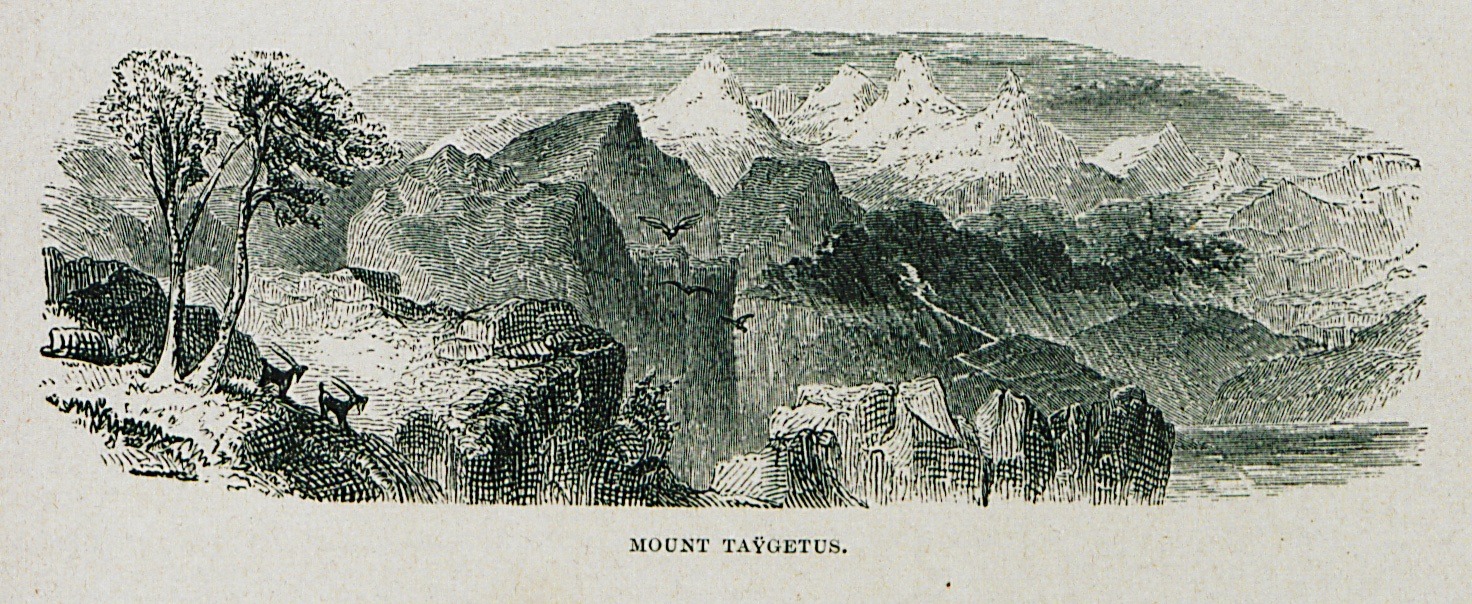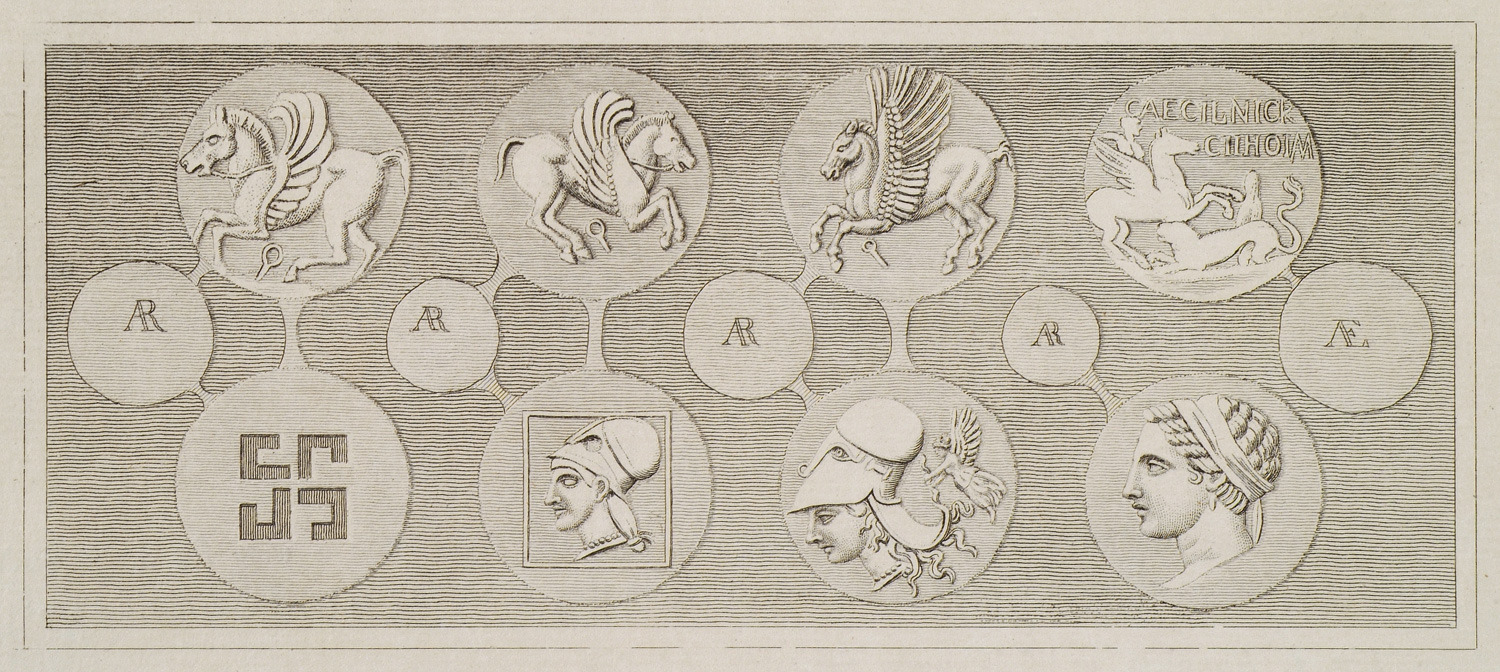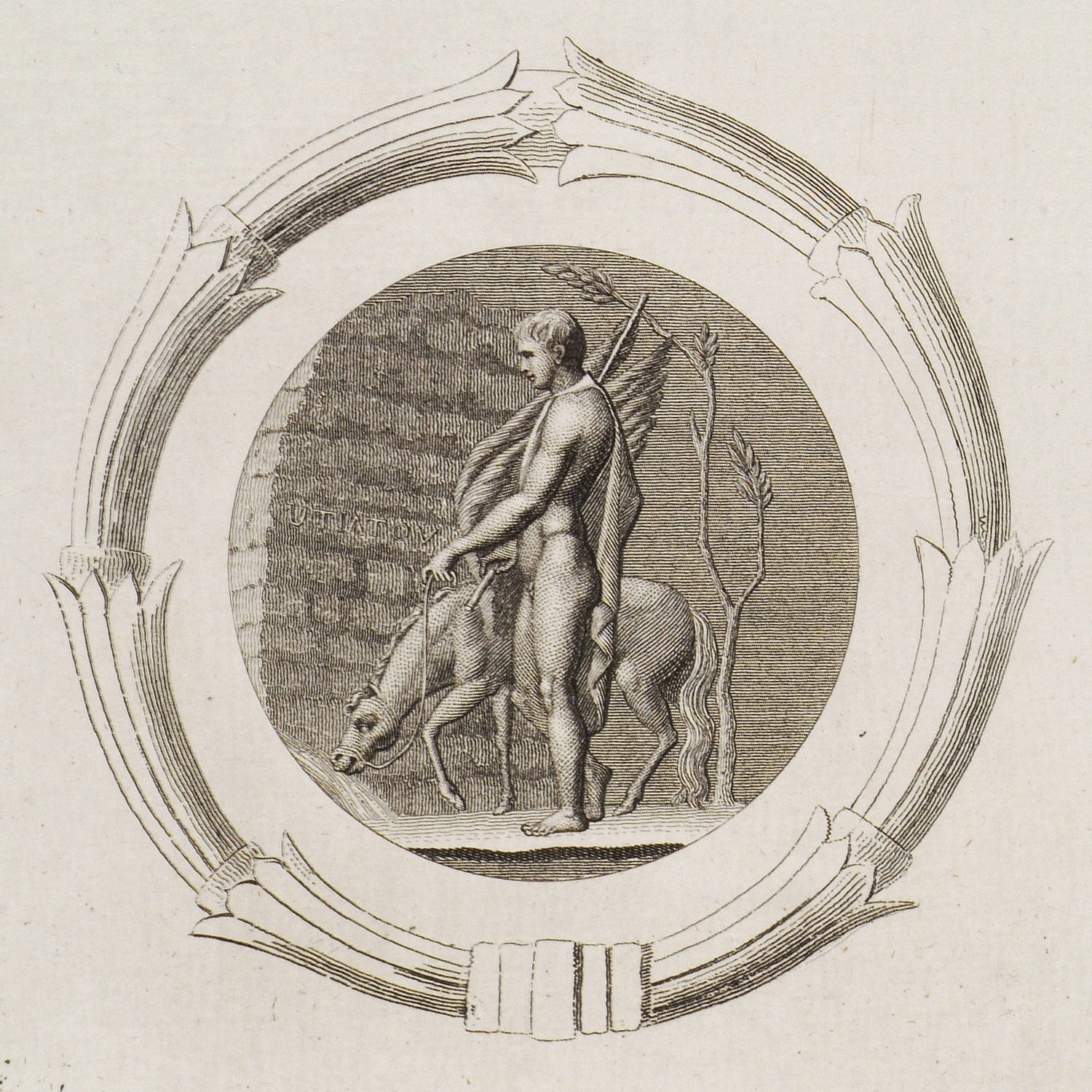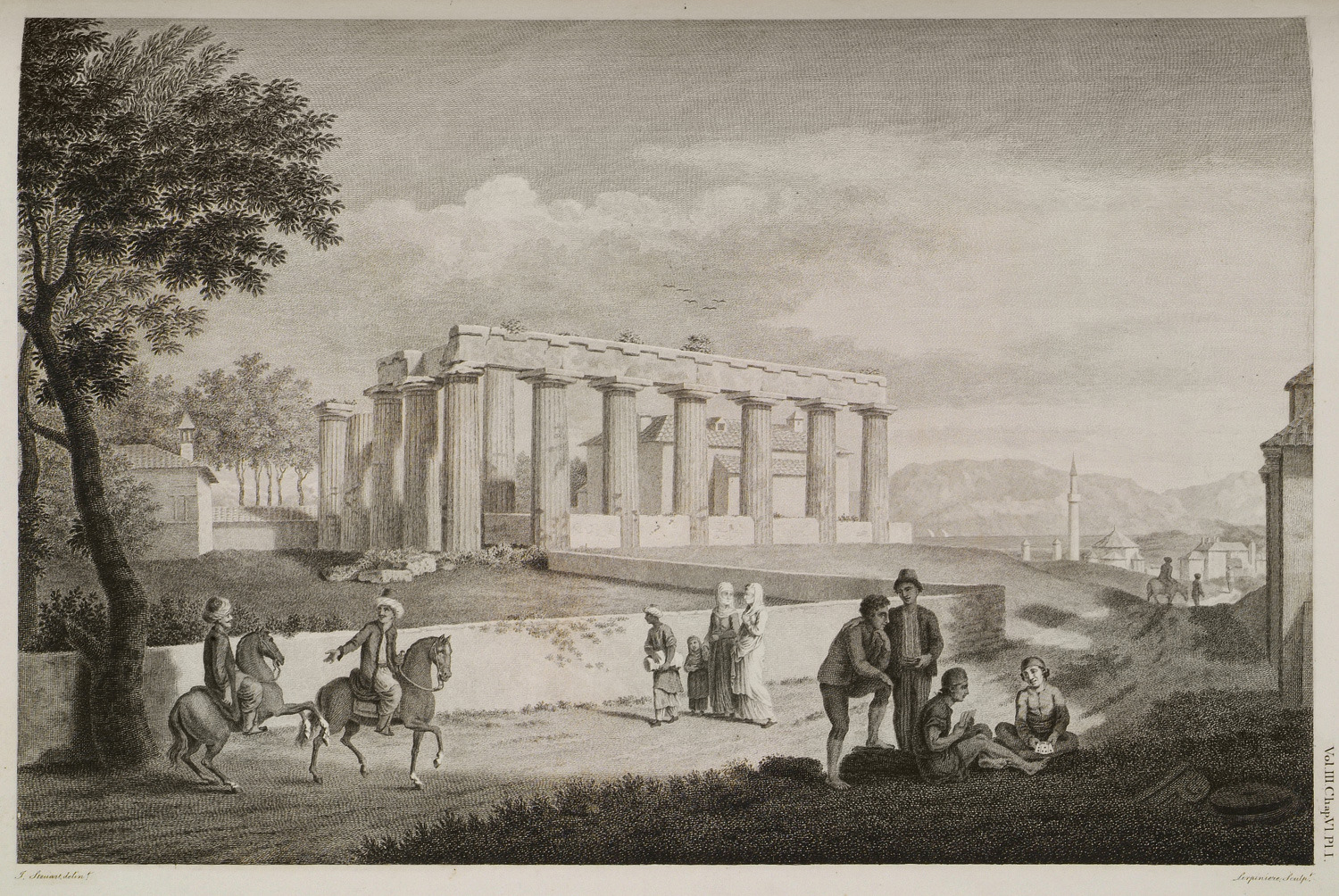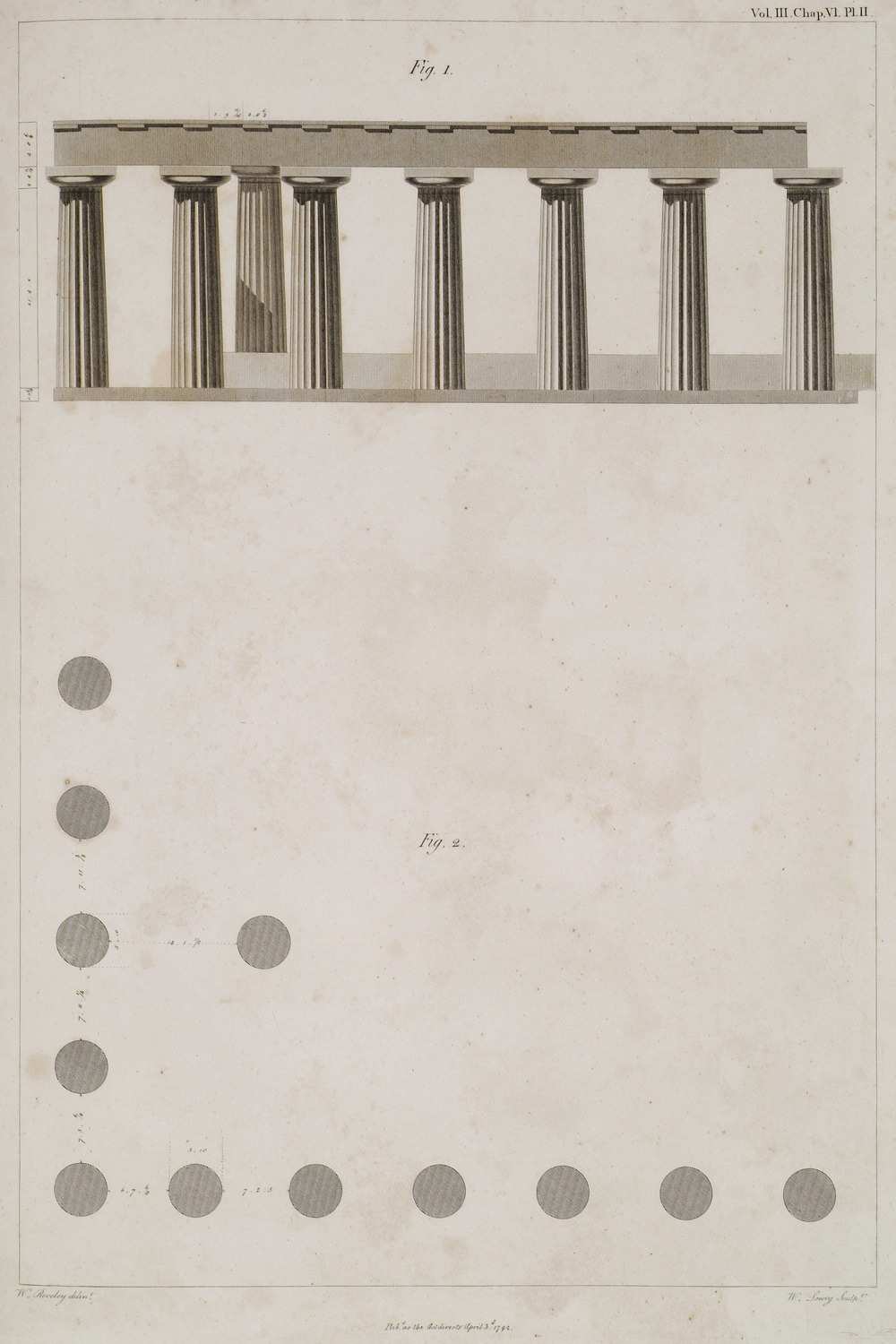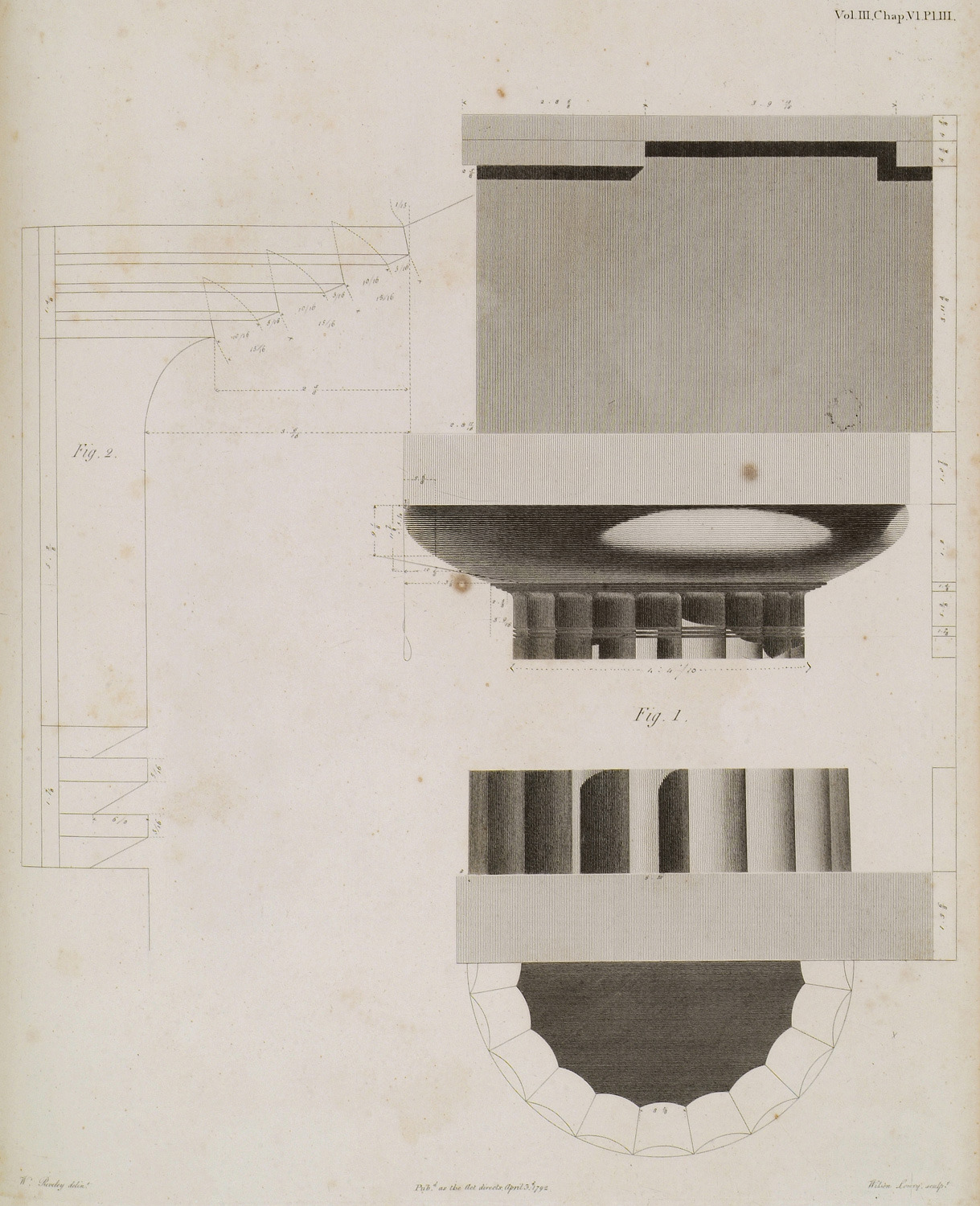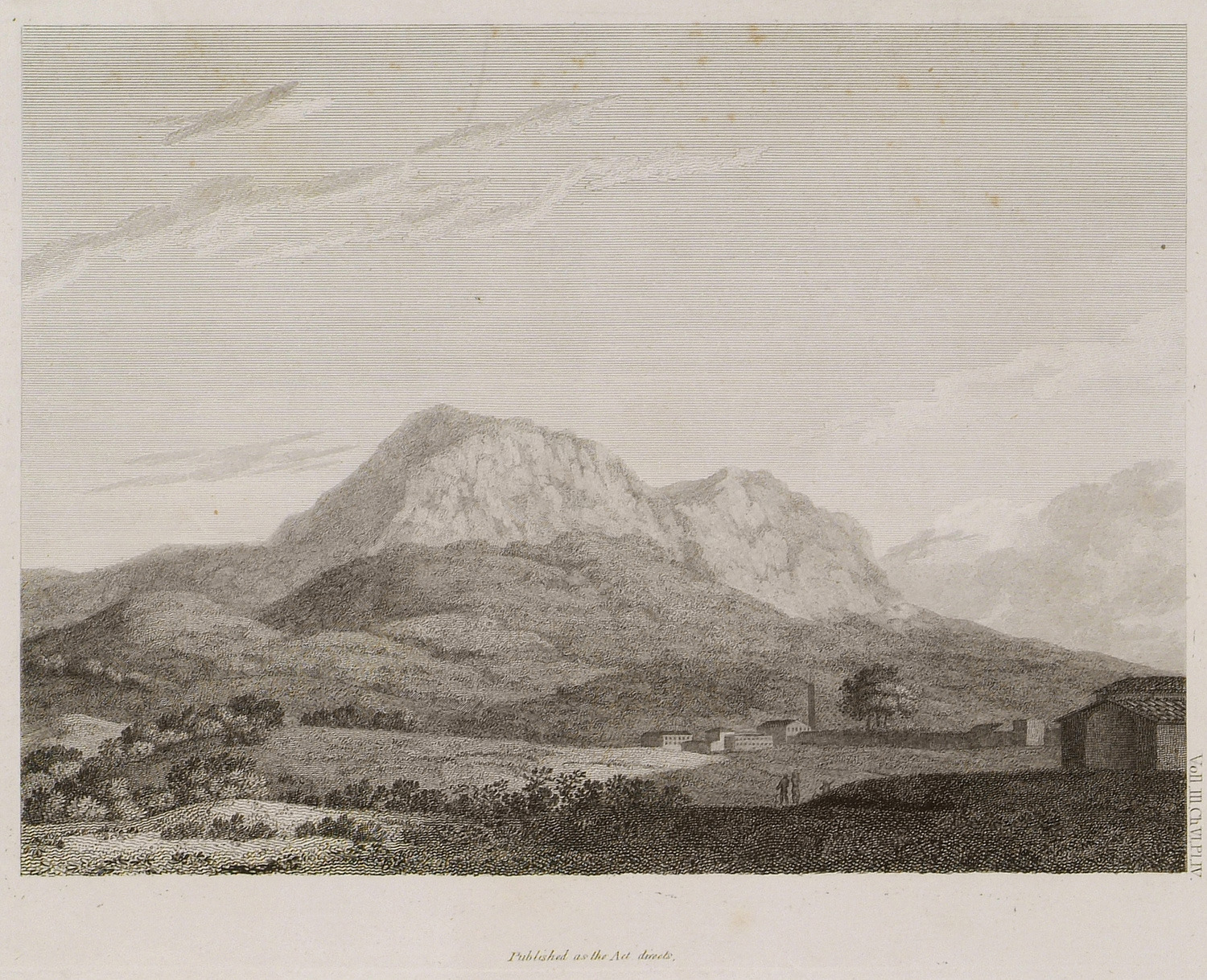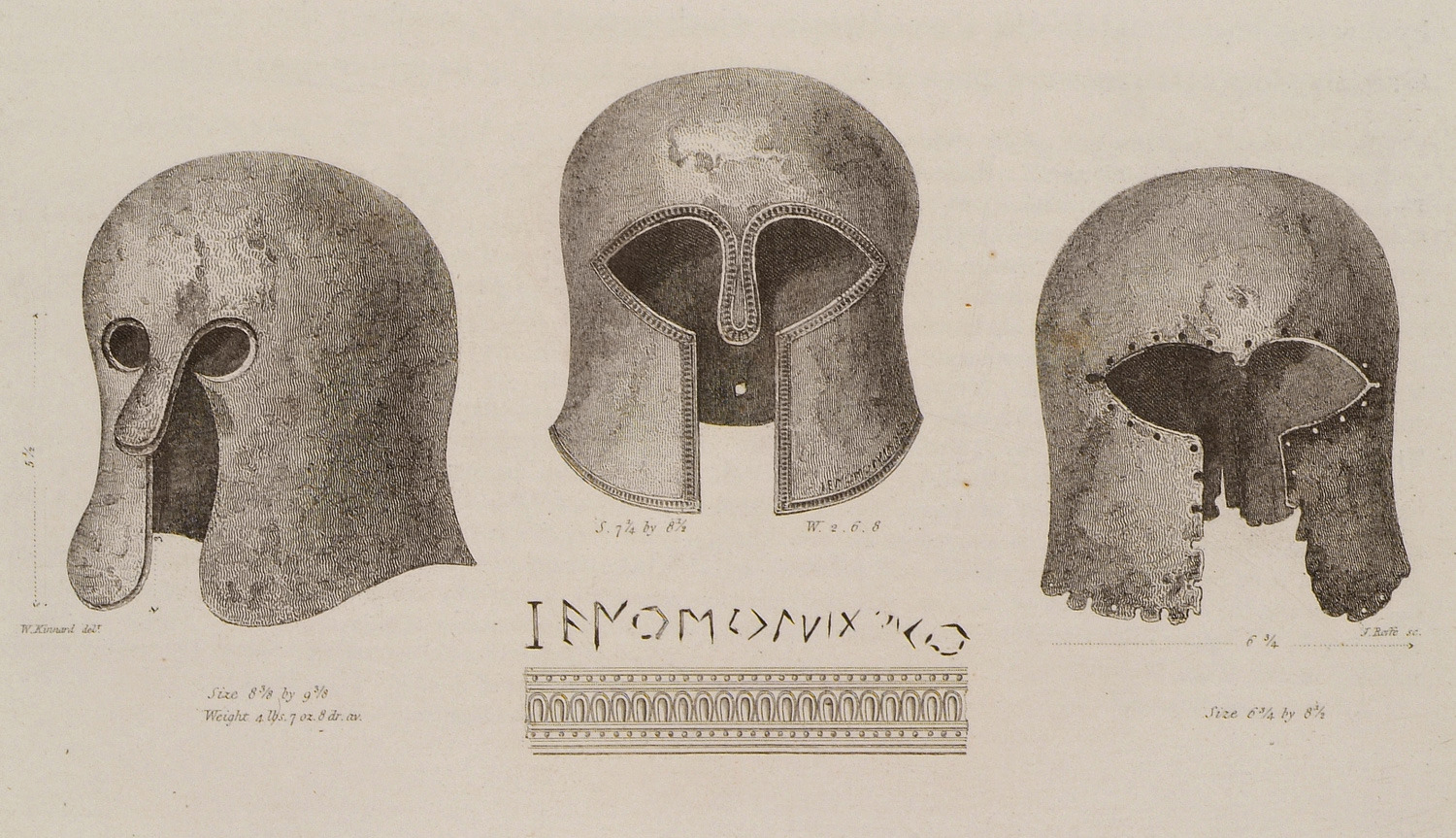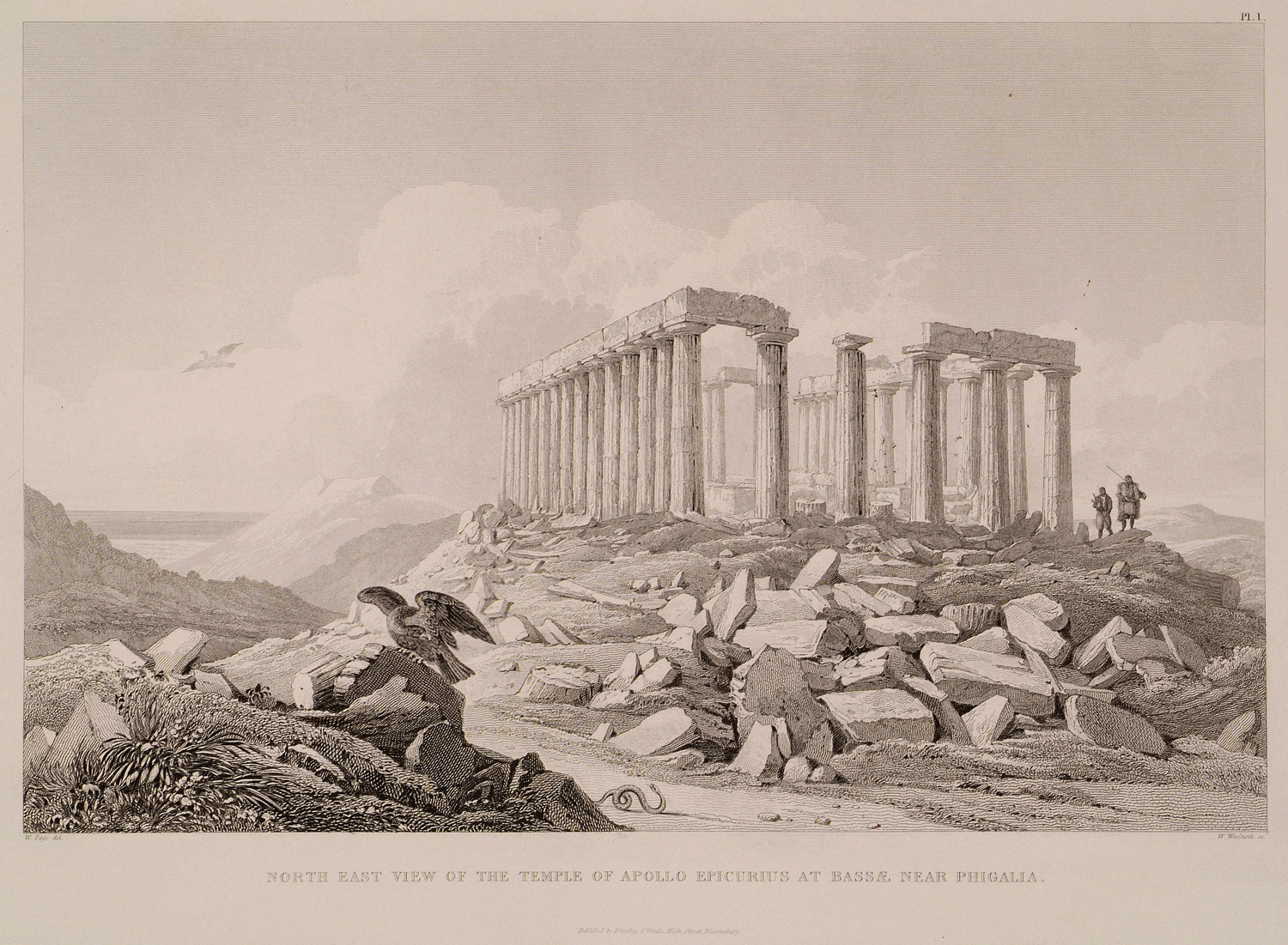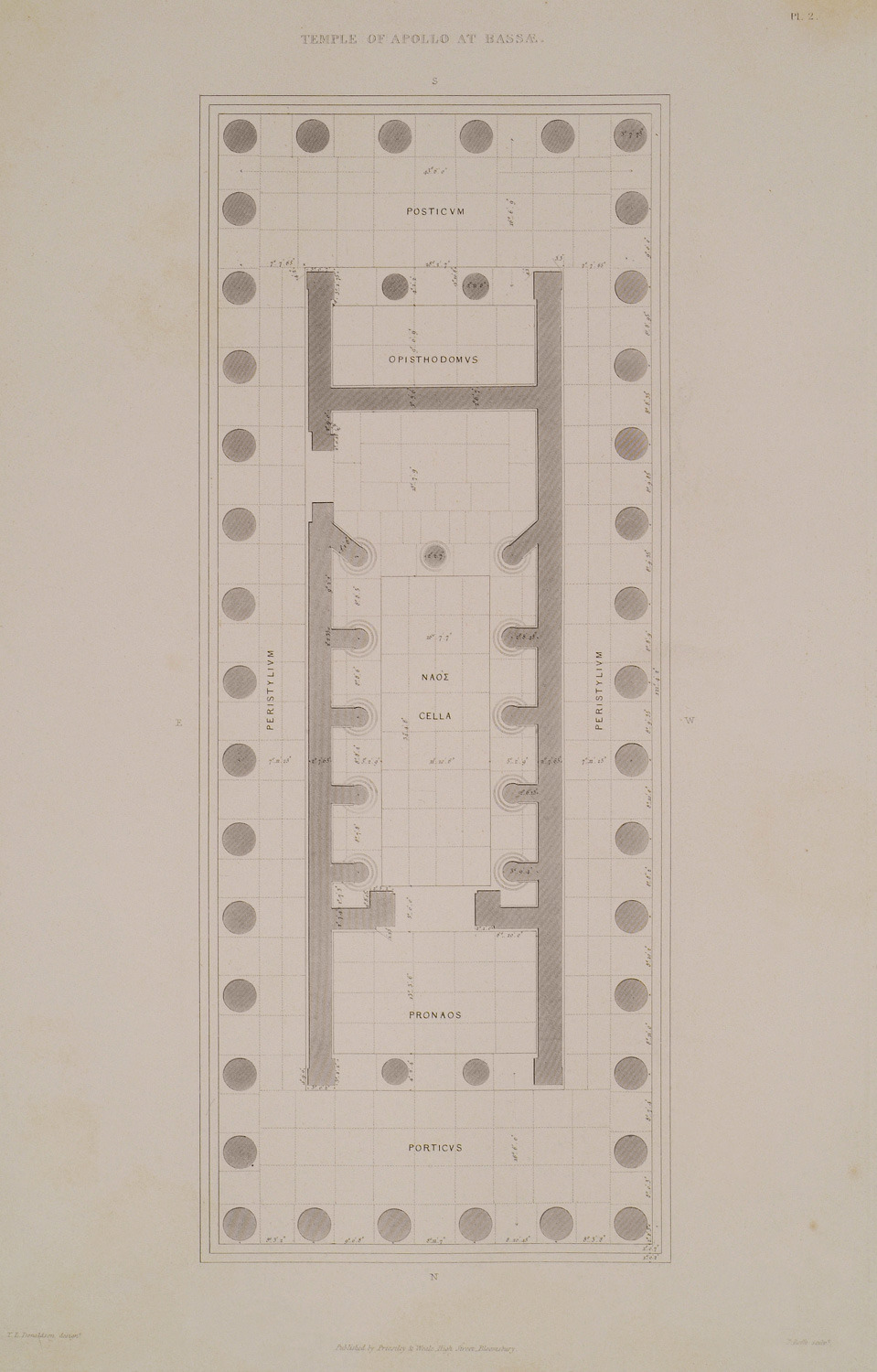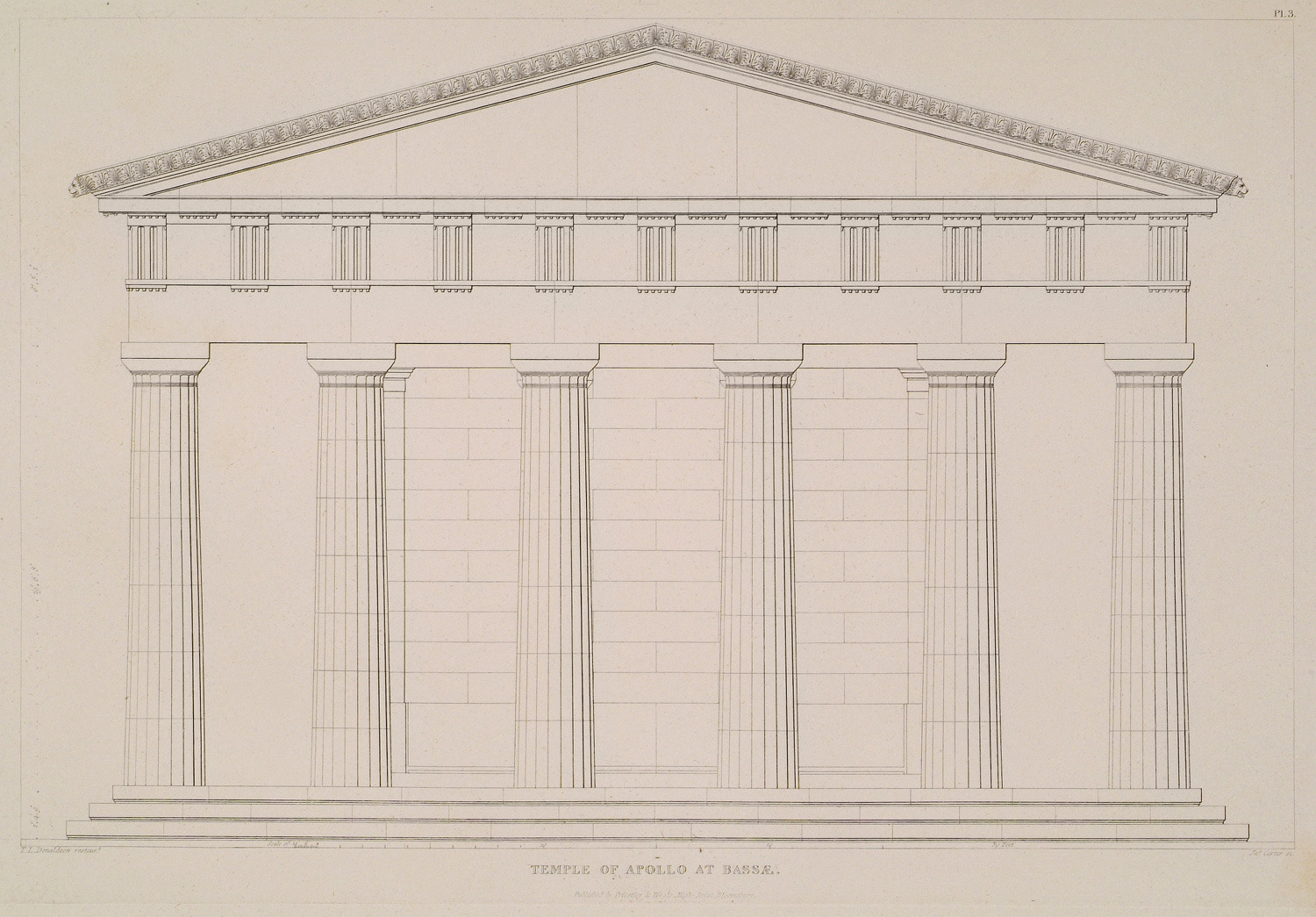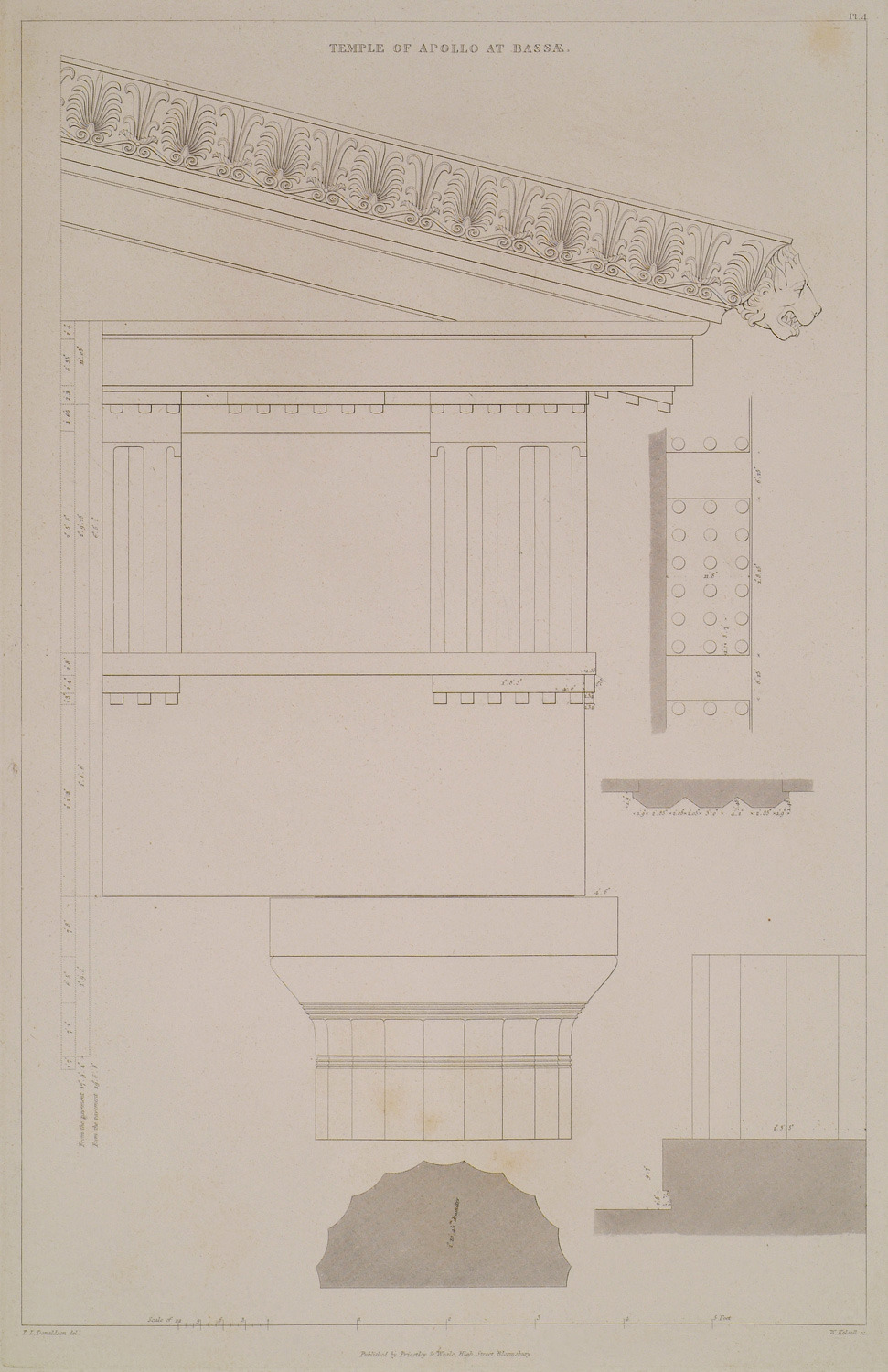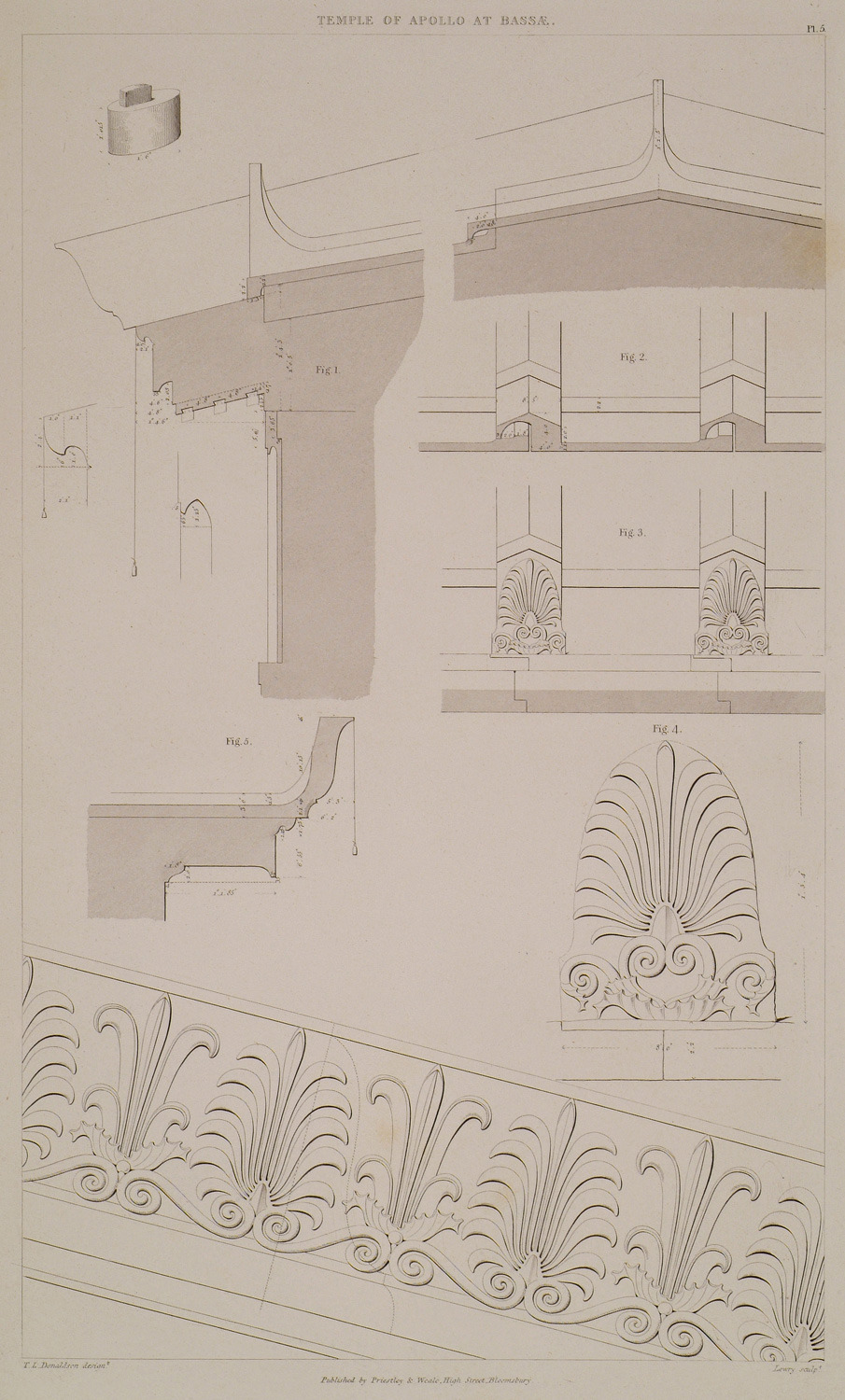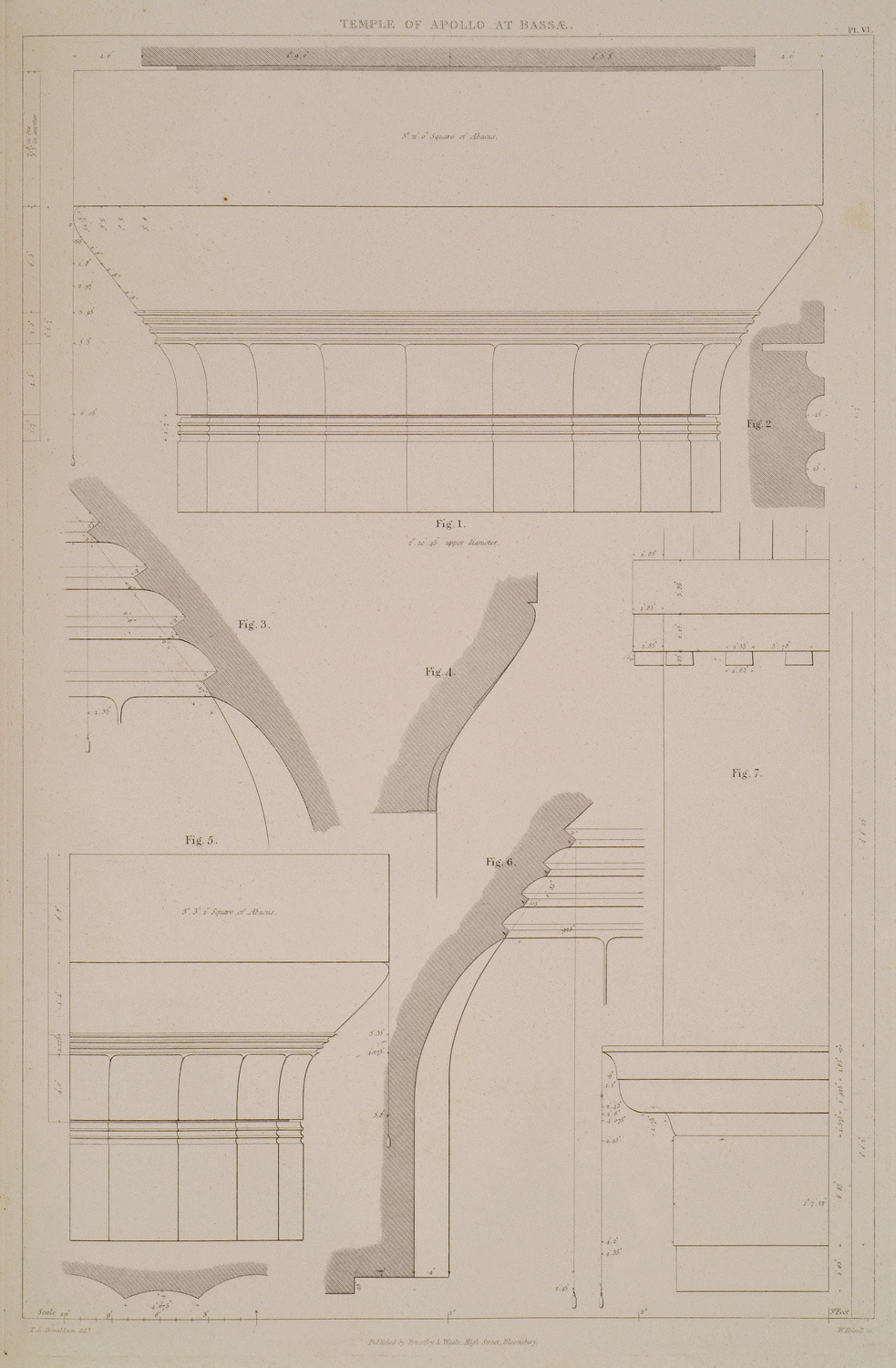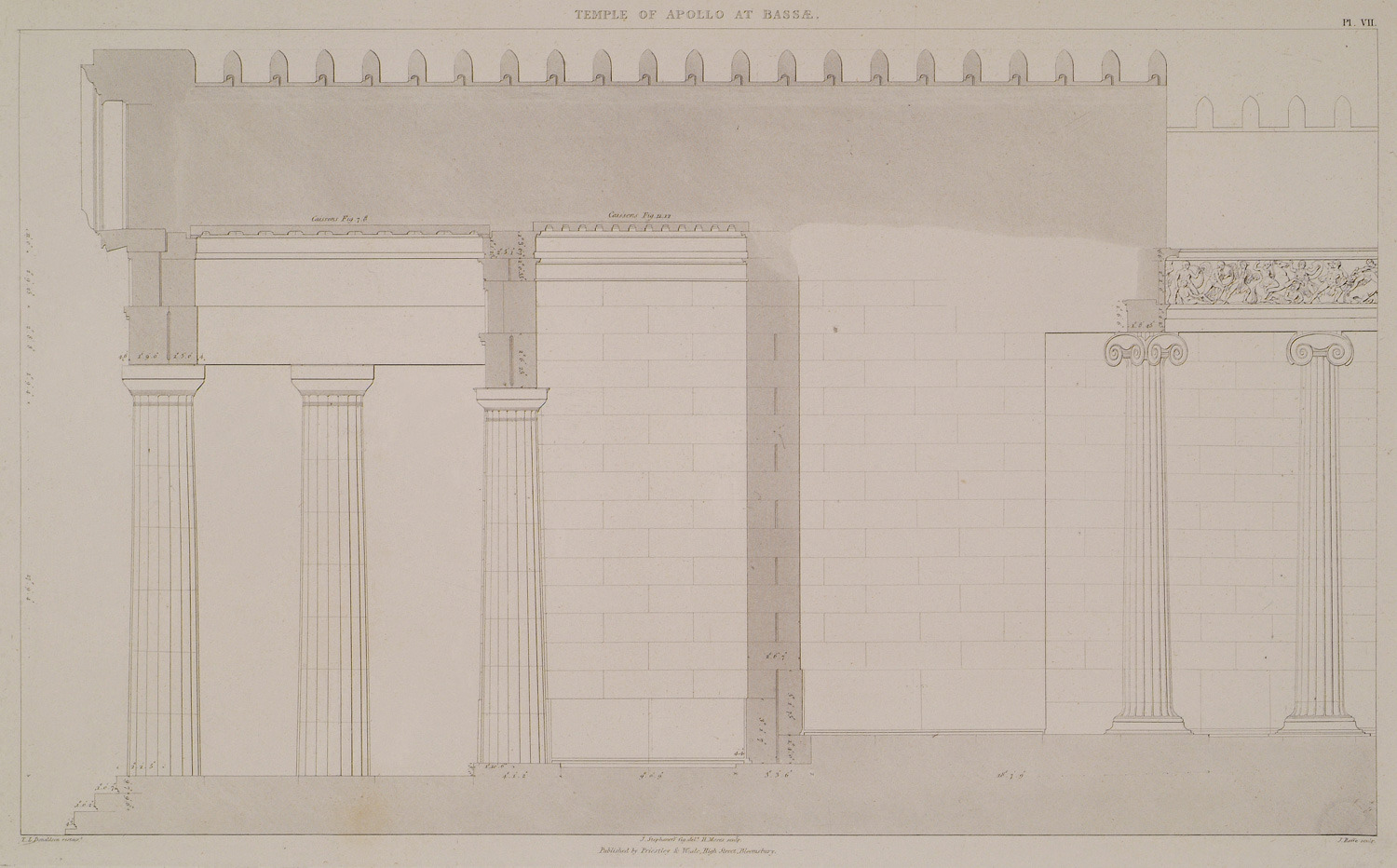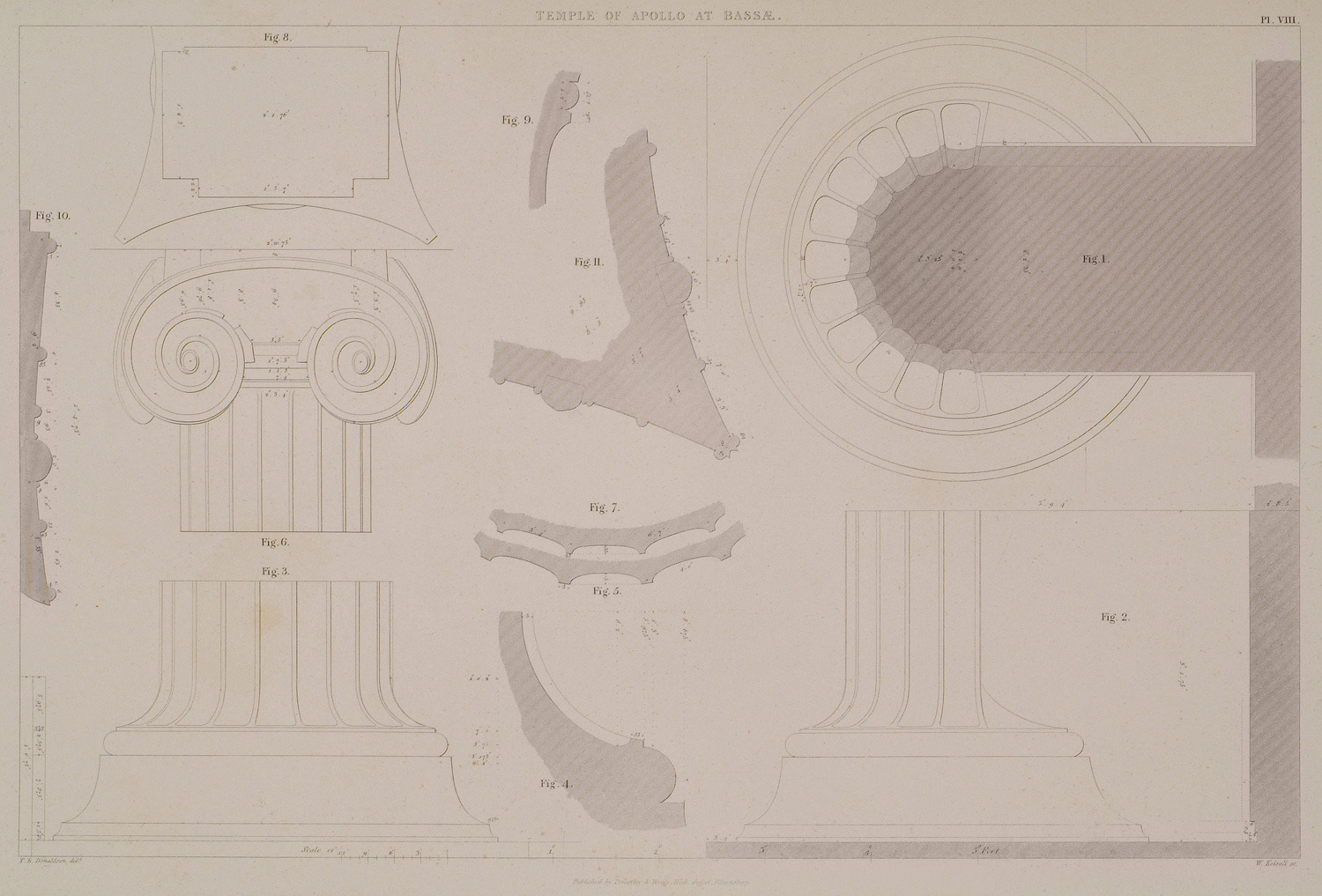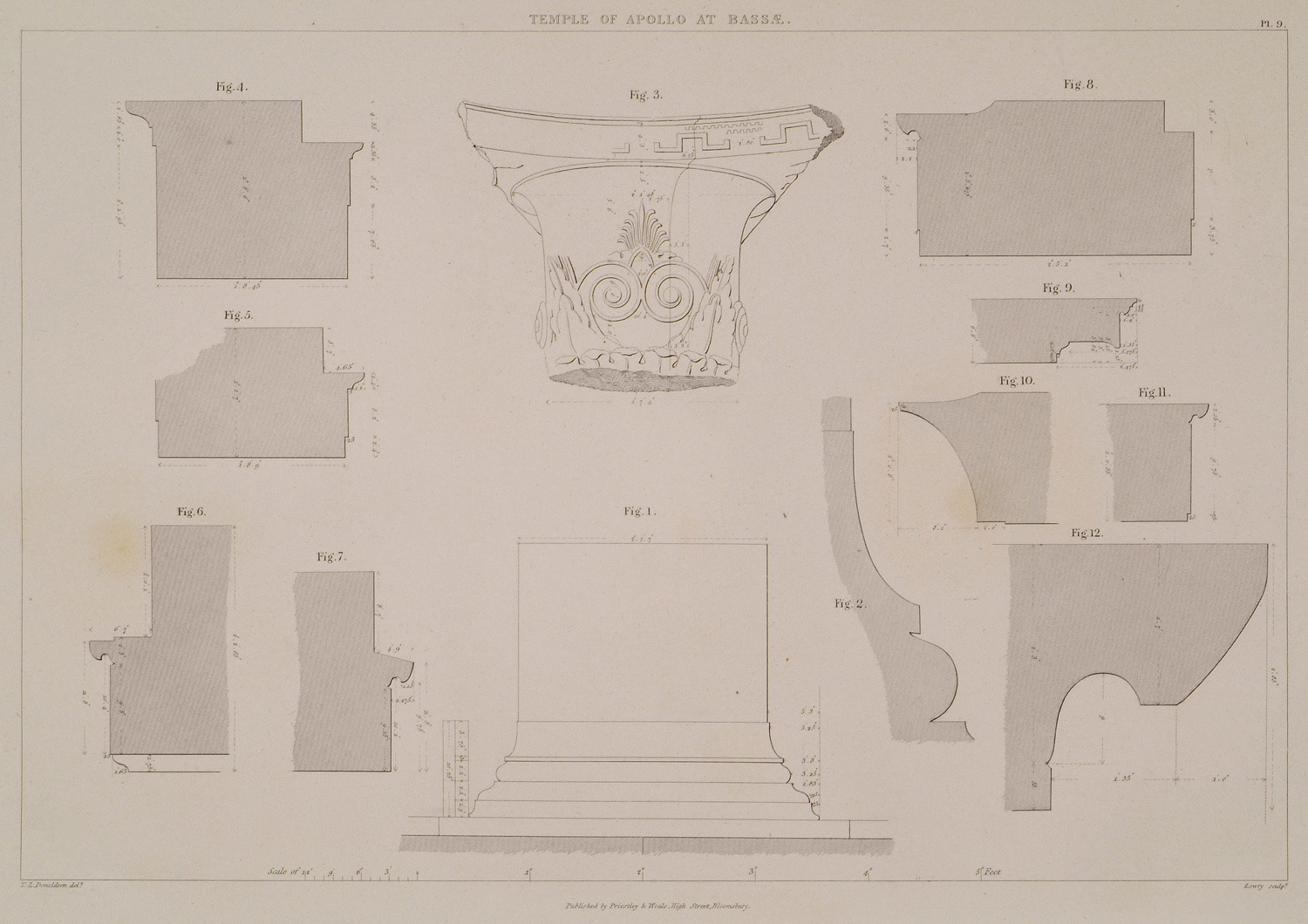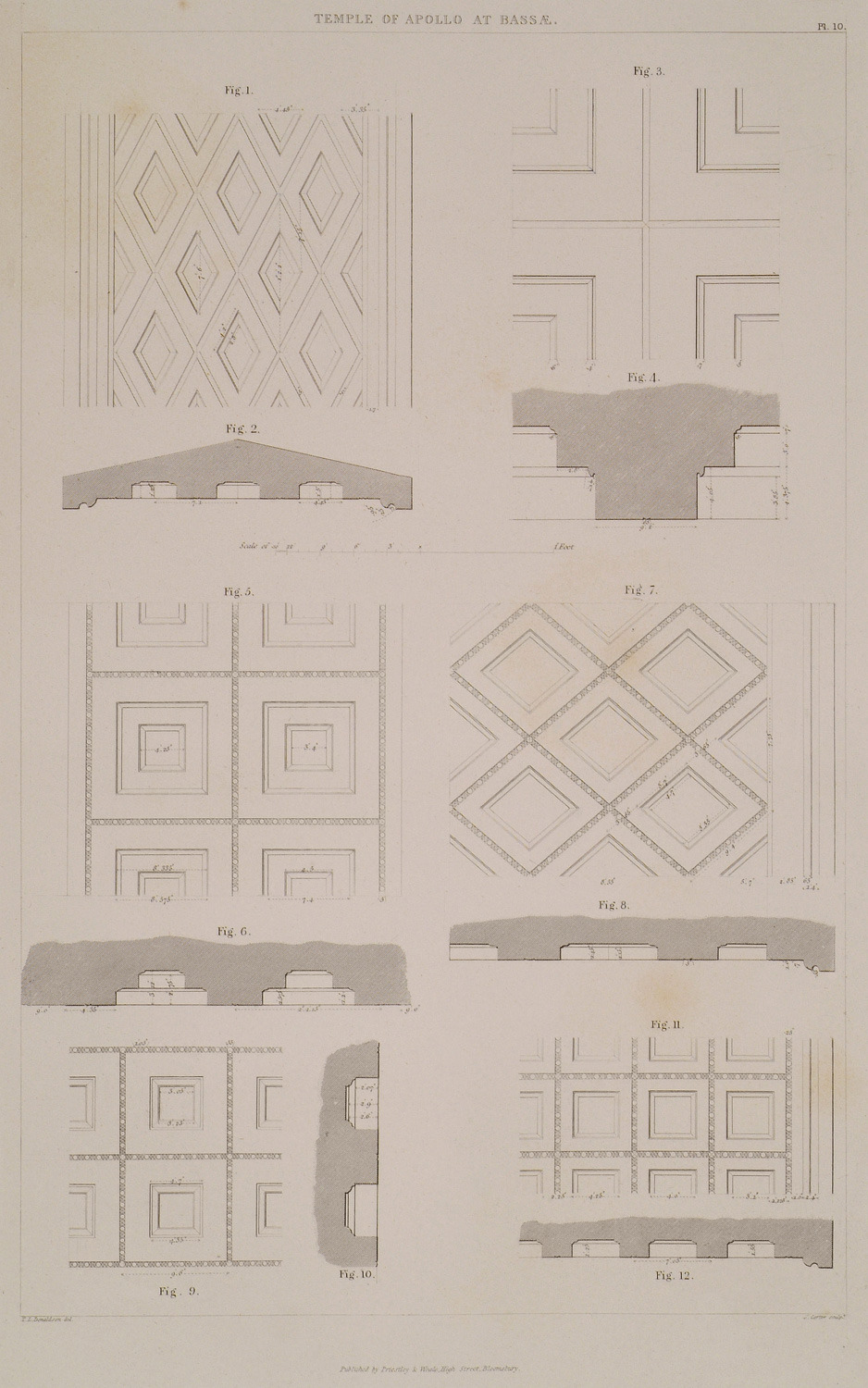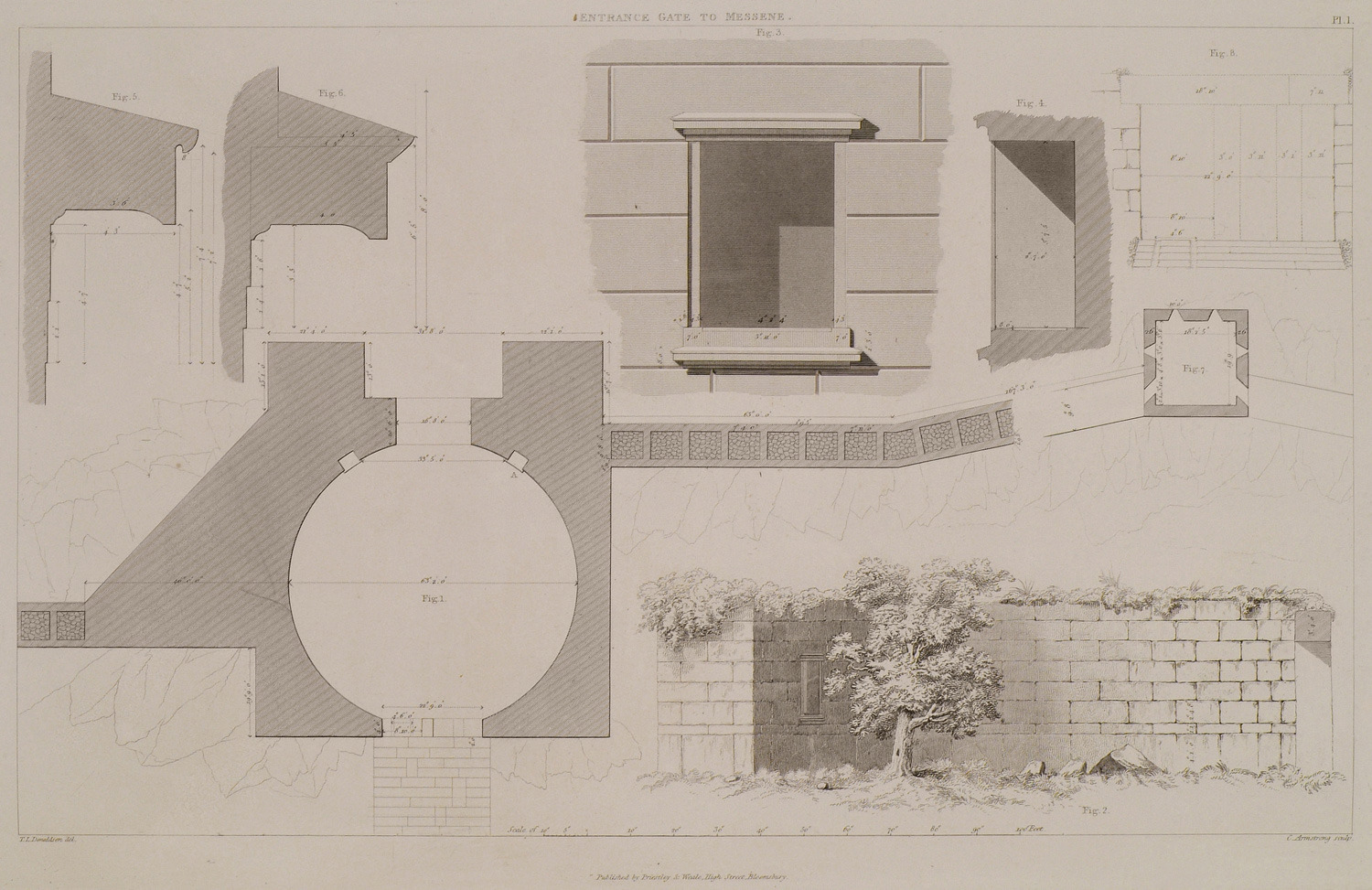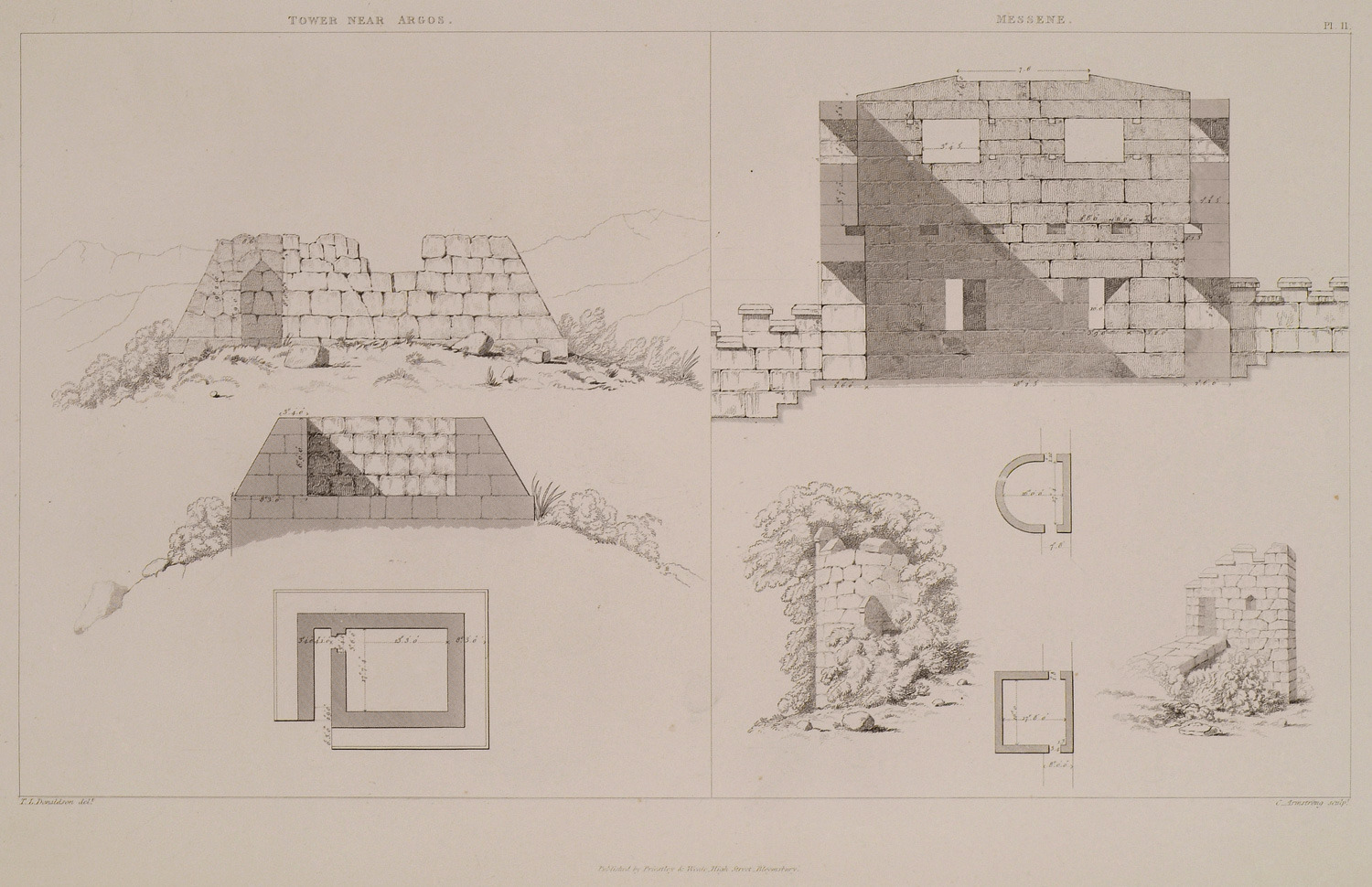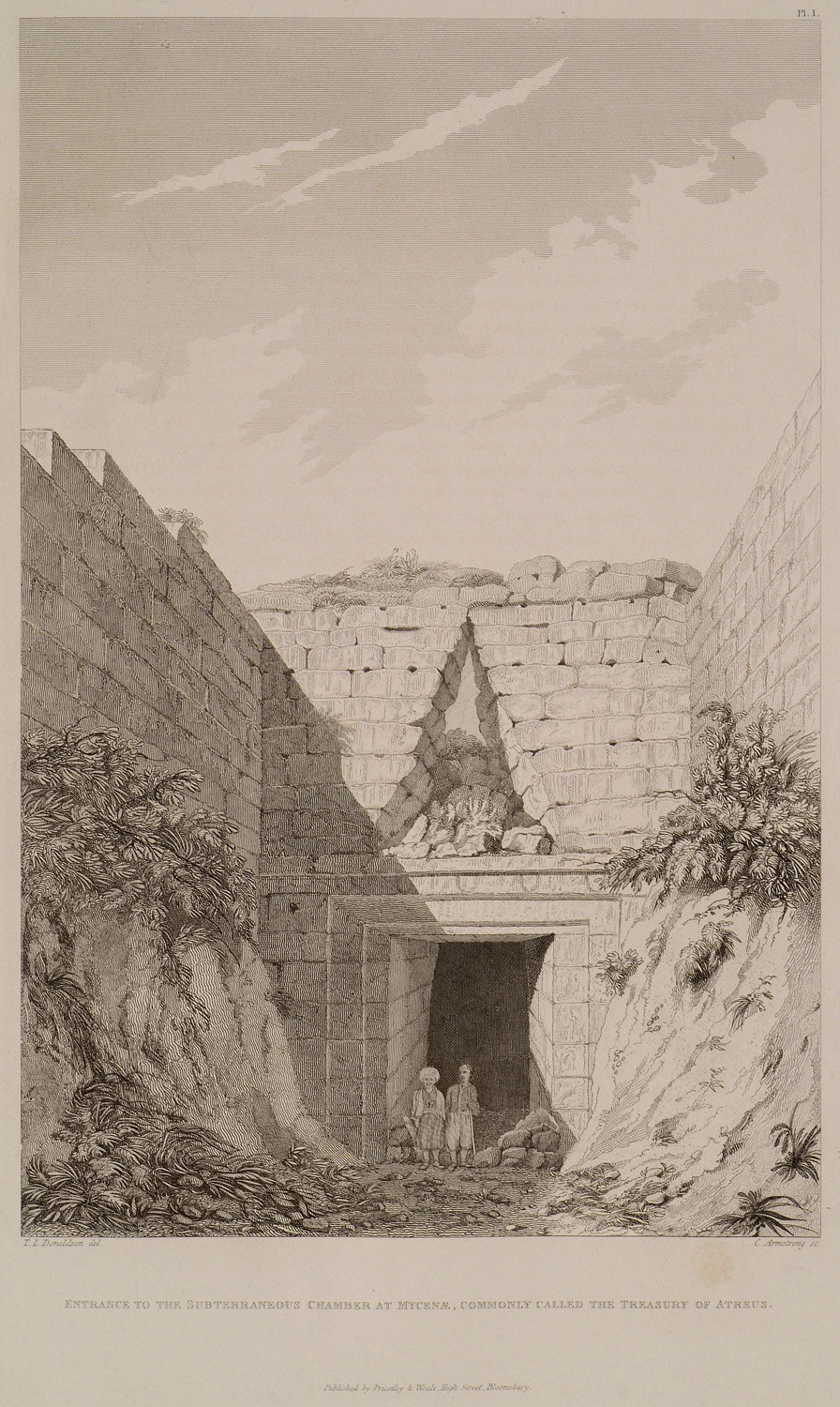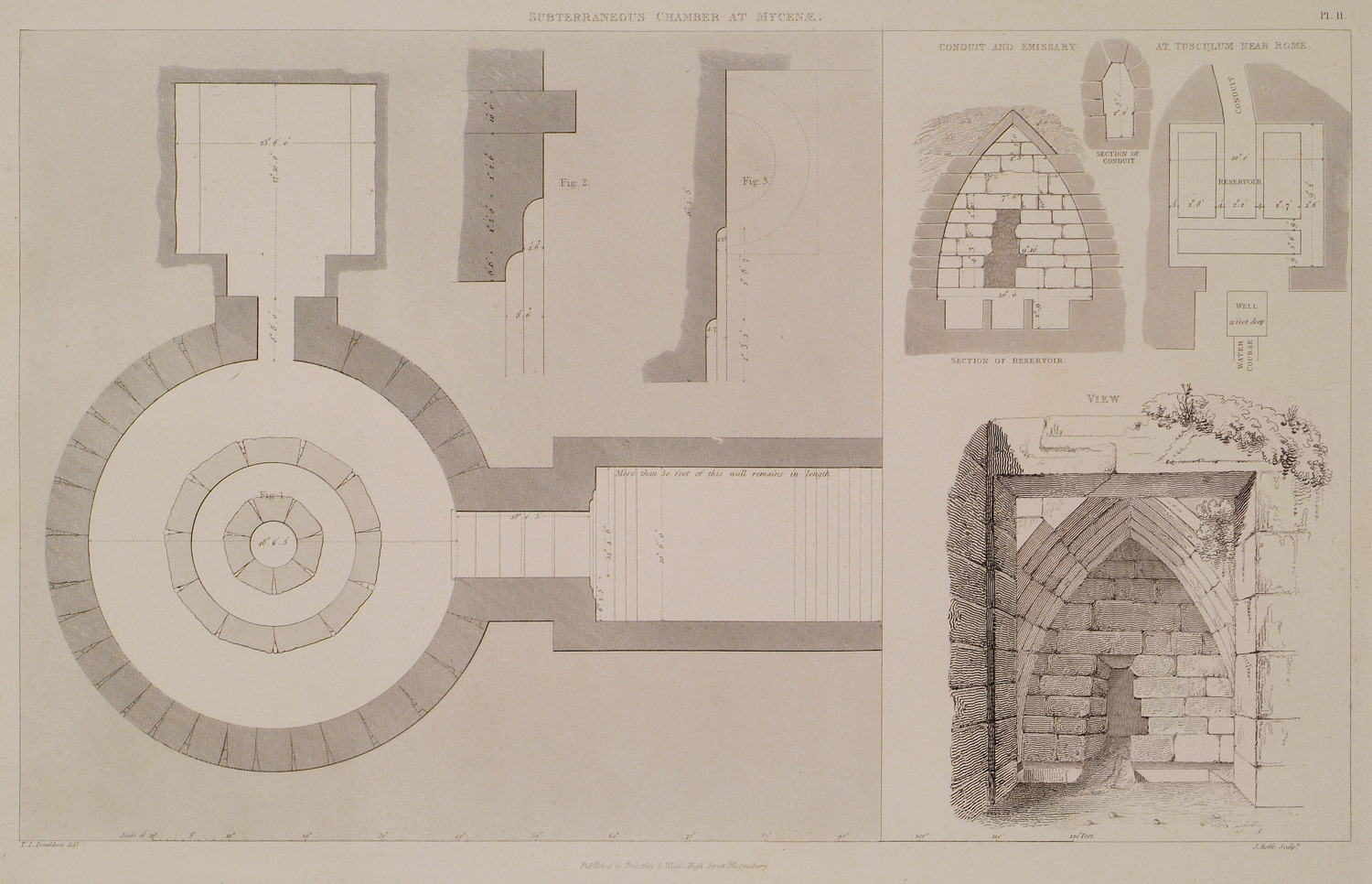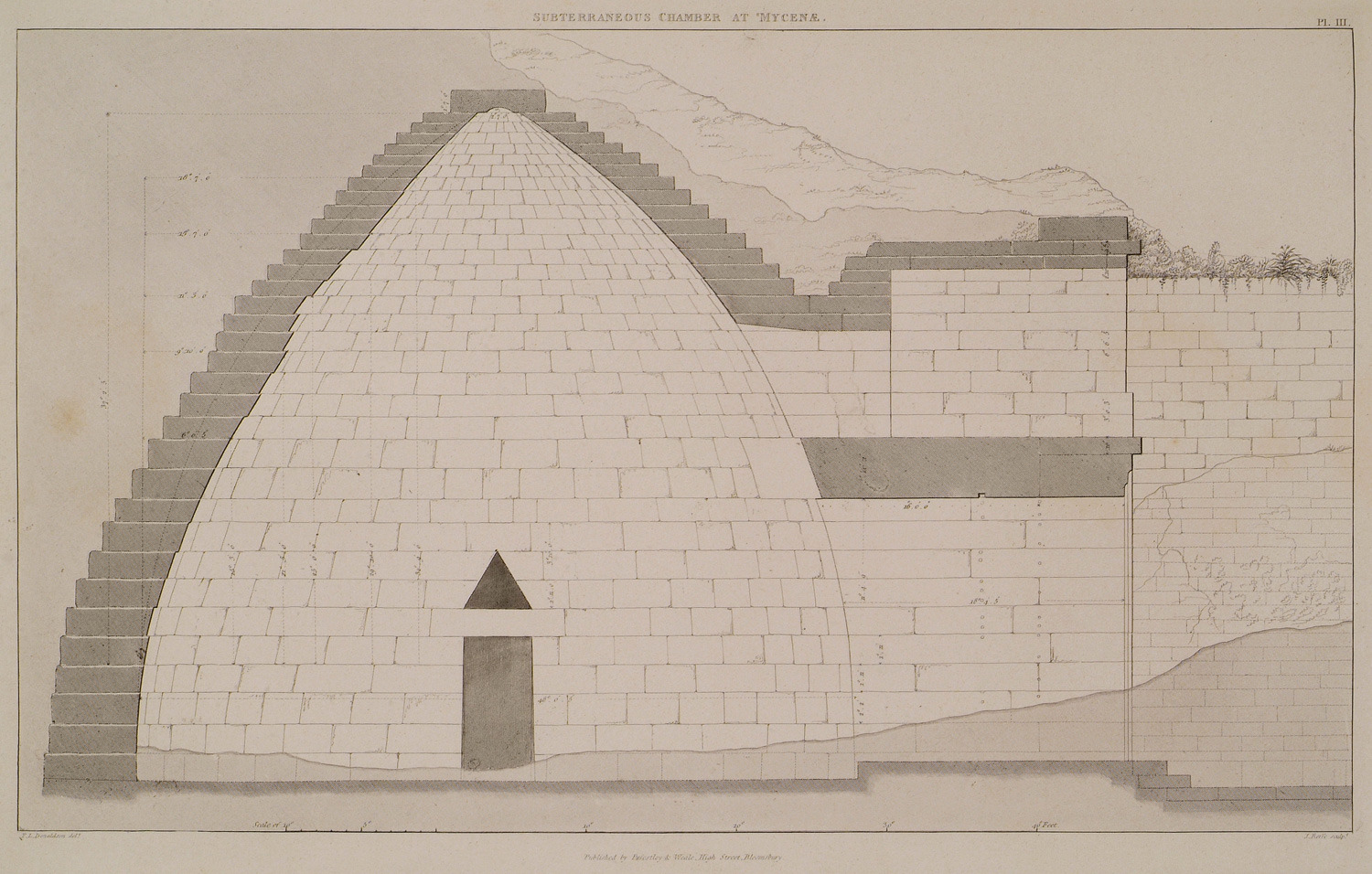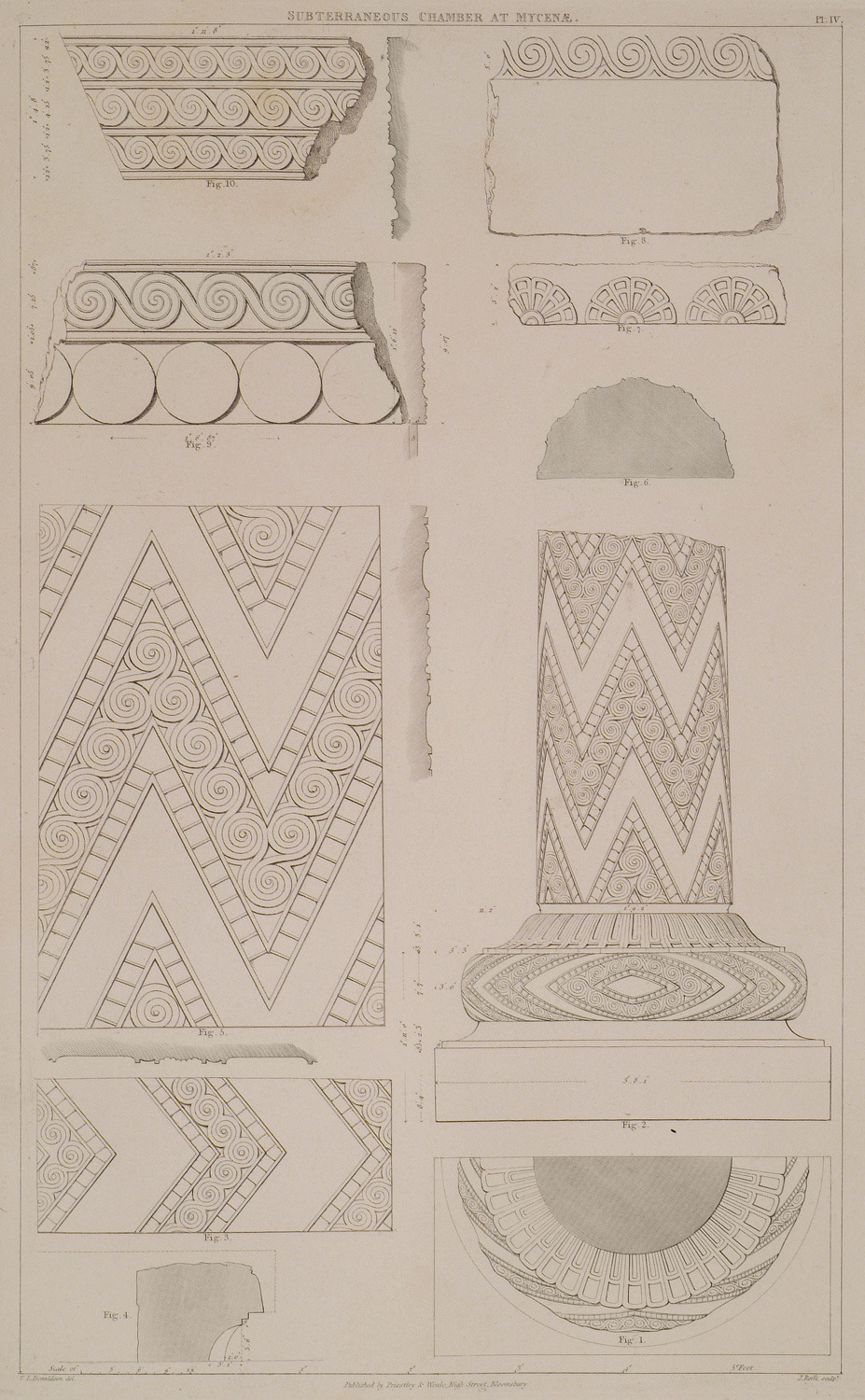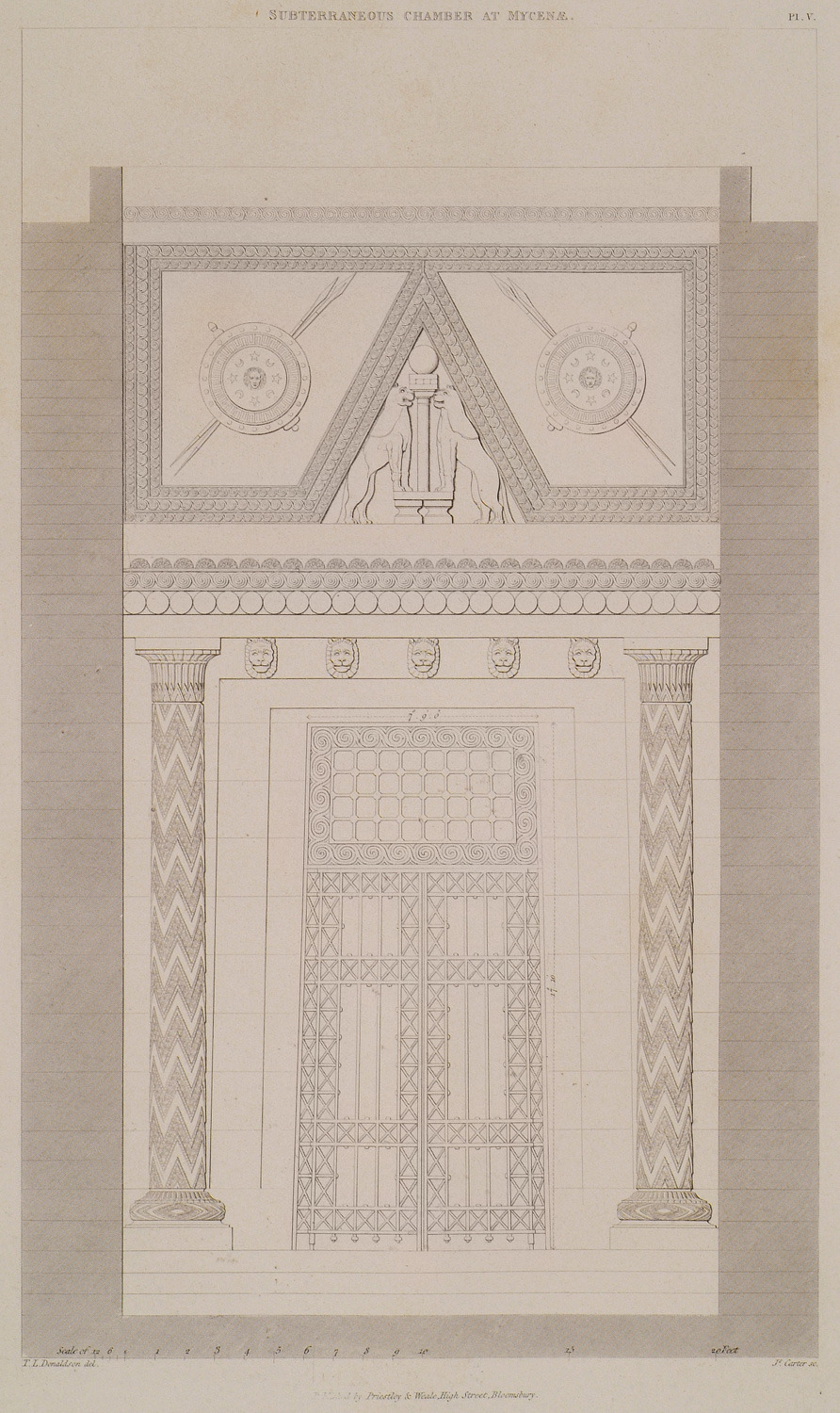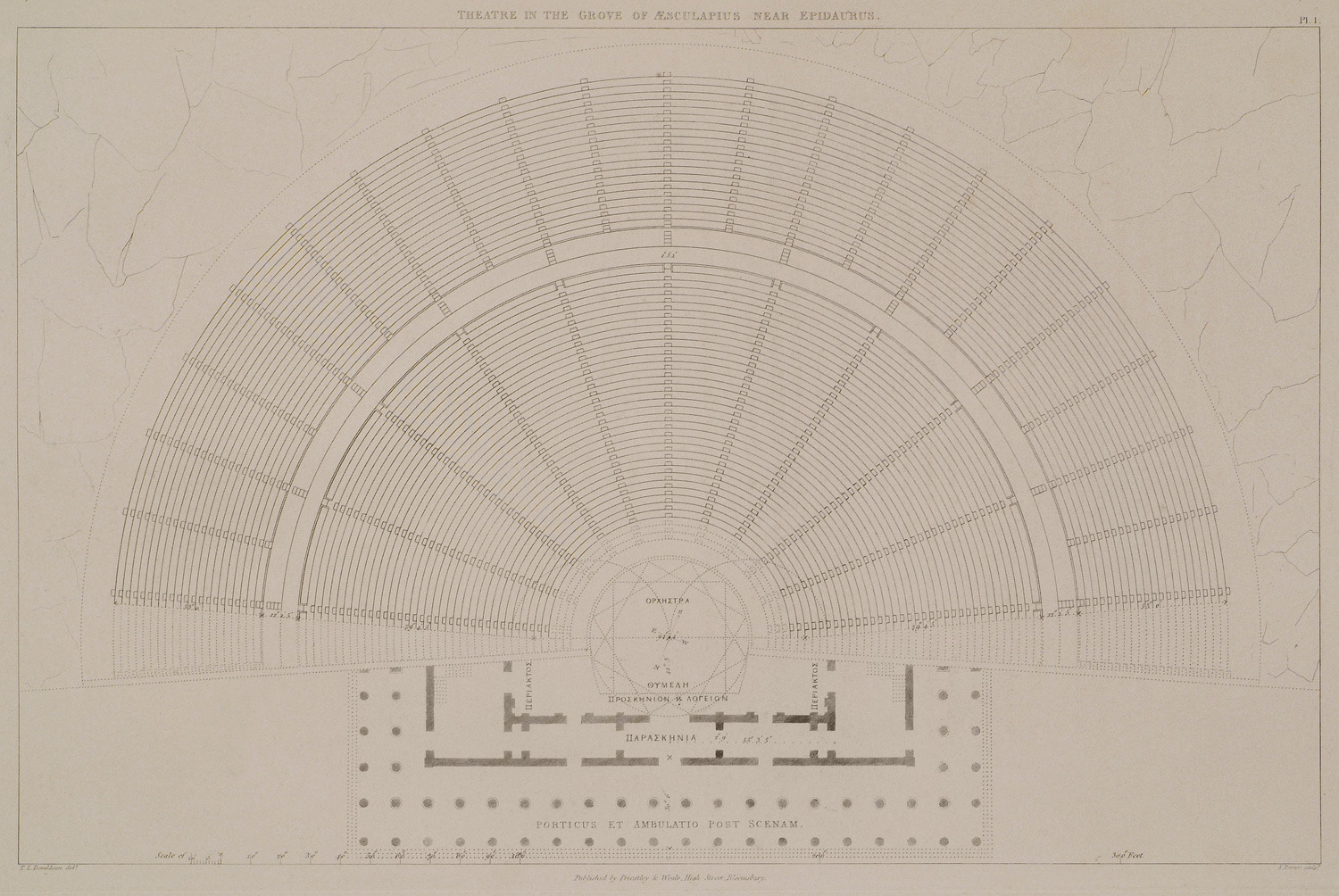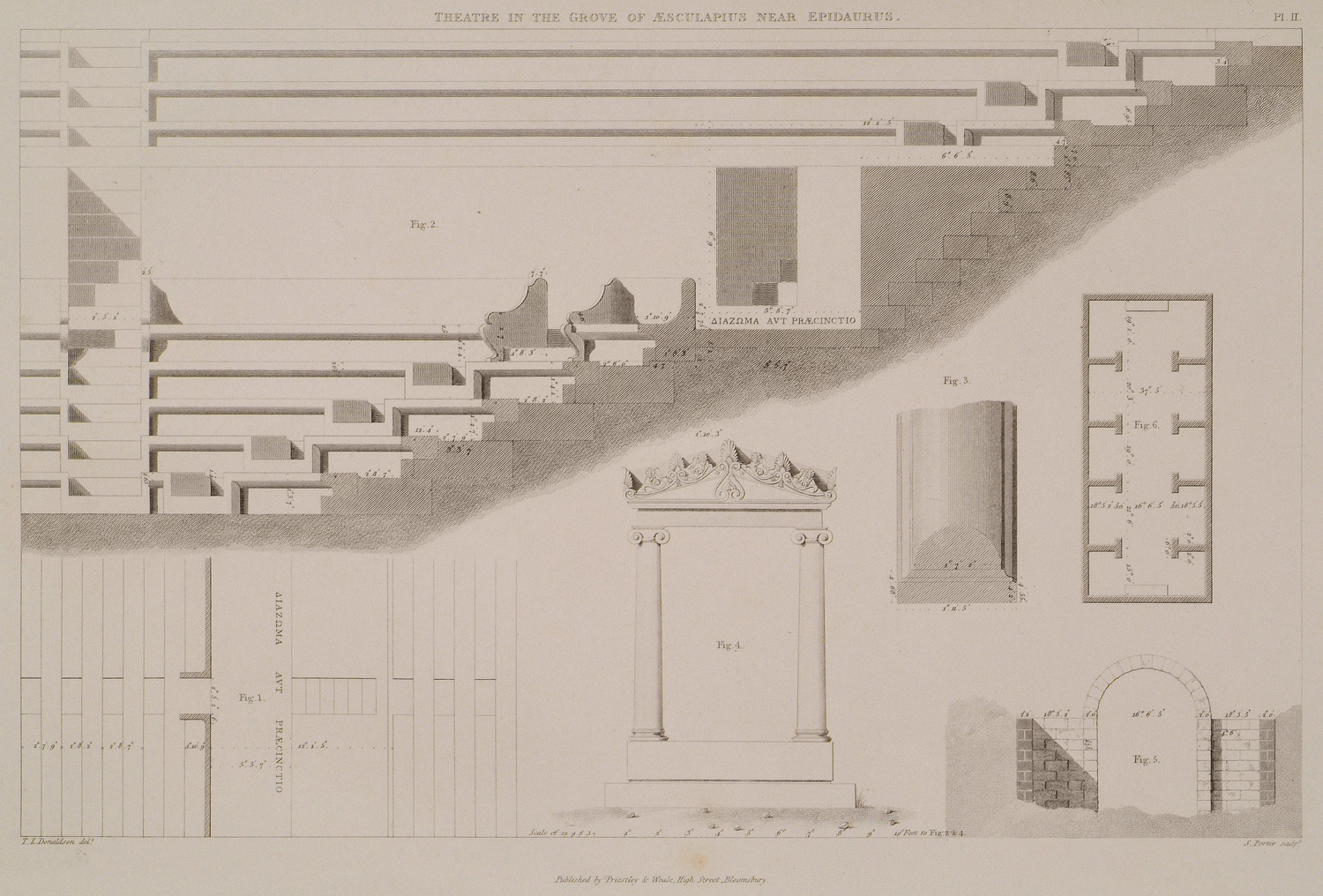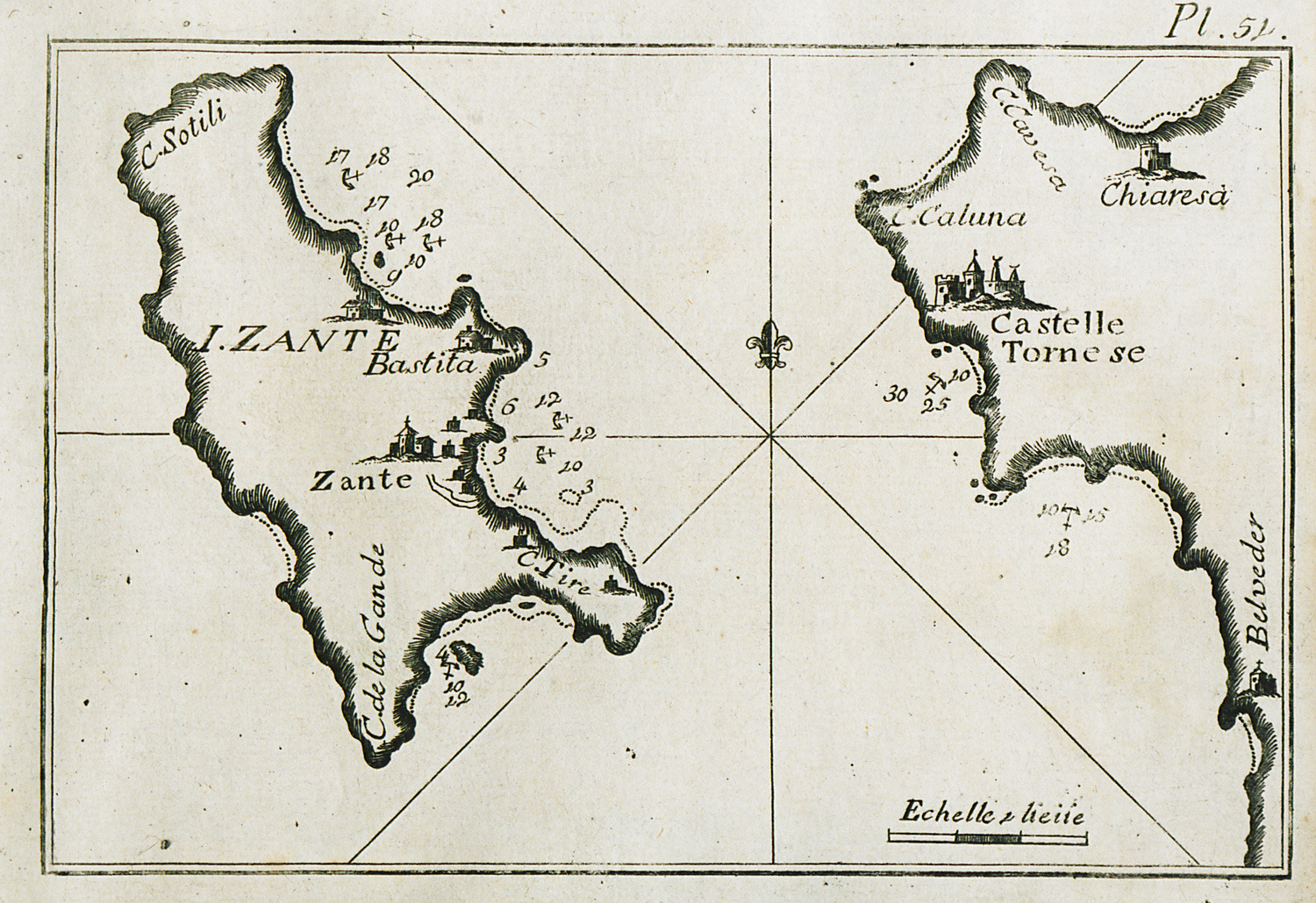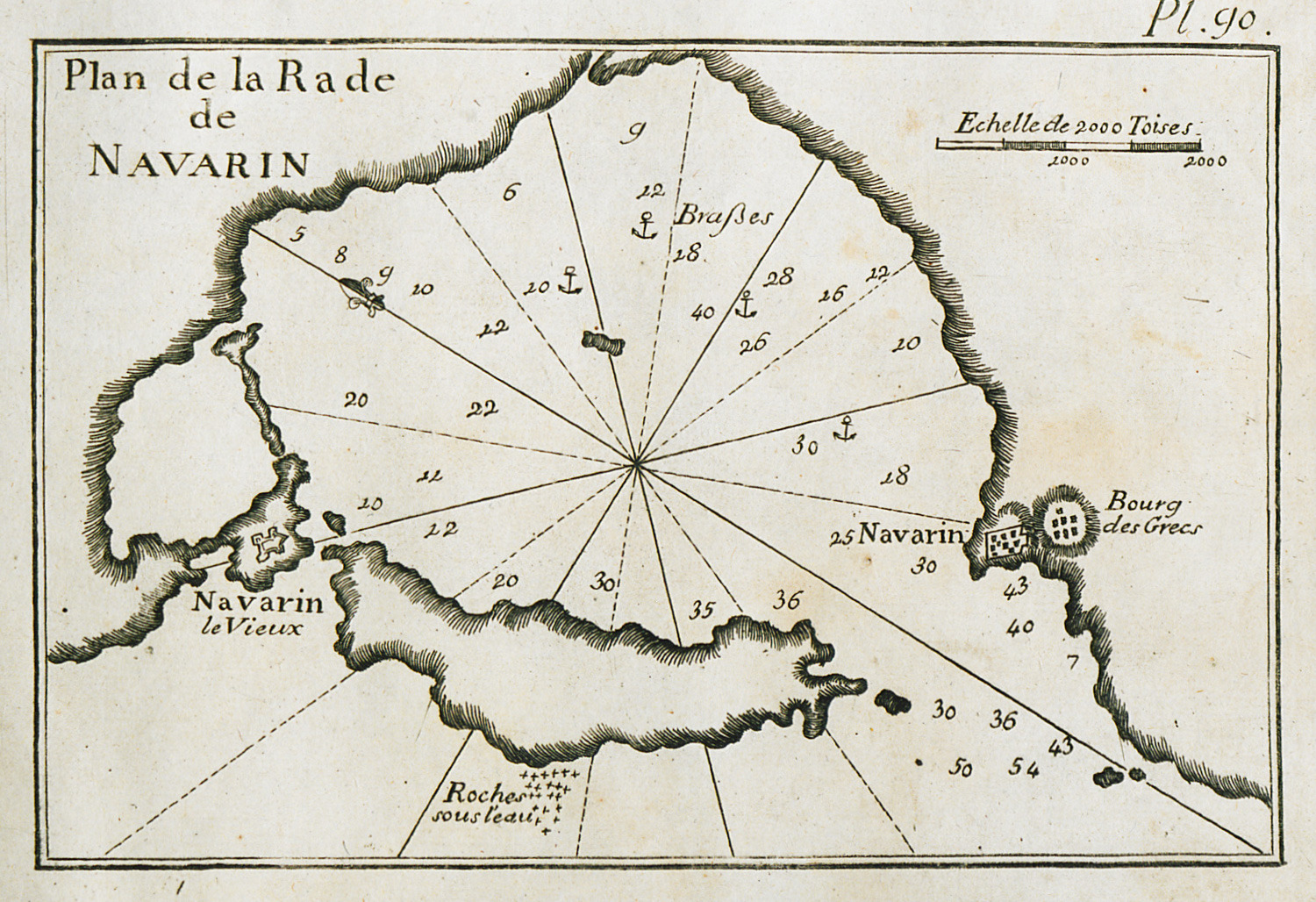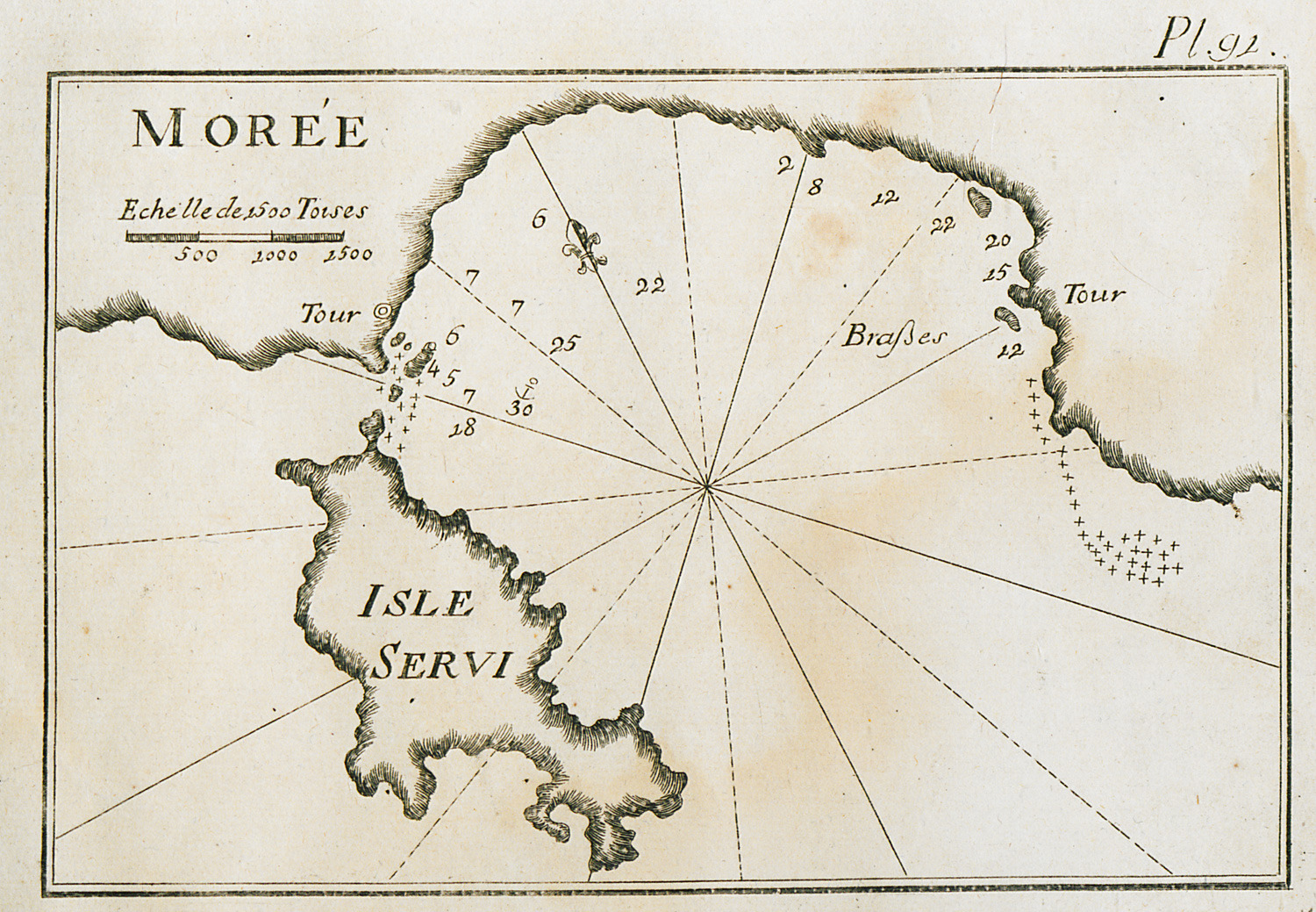Peloponnese (1650 Subjects)
Mount Taygetus.
Coins of ancient Corinth showing Pegasus, Athena, Persephone, and Bellerophon killing Chimaera.
The Tail-Piece is an Isthmian crown, in the center of which is a medallion of Bellerophon watering Pegasus copied from an antique gem.
The temple of Apollo in Ancient Corinth. In the foreground two men on horseback and two women promenading. A small party of card players.
Temple of Apollo, ancient Corinth: Fig. 1: Elevation of what is supposed to have been the flank of the temple. The modern wall between the columns is inserted in this elevation no measures of the column which formed a part of the pronaos have been found. Fig. 2: Plan of the temple.
Temple of Apollo, ancient Corinth: Fig. 1: Capital and architrave of the columns with the step. There were six drops under each triglyph, but all of them broke off, for which reason they could not be measured nor drawn. Fig. 2: Annulets, or listels under the ovolo, full size.
View of Acrocorinth.
Ancient bronze helmets in Corinthian style from Patras.
North east view of the temple of Apollo Epicurius at Bassae, near Phigalia.
Plan of the Temple of Apollo at Bassae.
Elevation of the the front of the Temple of Apollo at Bassae (reconstruction).
Temple of Apollo at Bassae: Plans of the shaft, capital of the column, entablature. Section plan and bottom view of the entablature.
Temple of Apollo at Bassae: Fig. 1: Section through the frieze and cornice. Fig. 2, 3, 4: represent the section and elevations of the tiles and ante-fixae, which were of marble. [...] Fig. 5: Section of the raking cornice of the pediment. Fig. 6: The ornament of the sima more at large.
Temple of Apollo at Bassae. Details of the Doric capitals. Fig. 1: Capital of the Doric order of the peristyles to a larger scale. [...] Fig. 3: Annulets to the full size. Fig. 4: In this ouline are shewn the general principles which appear, on most occasions, to have directed the Greeks in the composition of their Doric capitals. Fig. 5: Capital of the pronaos and posticum. Fig. 6: Details of the annulets and necking of the less order to the full size. Fig. 7: Capital of the antae with the architrave of the order of the pronaos.
Temple of Apollo at Bassae: Longitudinal section through the posticum and opisthodomus of the temple.
Temple of Apollo at Bassae. Details of the Ionic order of the interior. Fig. 1: Plan of the one of the attached Ionic columns with the various projections of the mouldings of the base. Fig. 2: Elevation of the preceding figures. [...] Fig. 3: Elevation of the front of the lower frustum and base of the Ionic columns. Fig. 4: Section to the fourth of the original size of the torus of the base, by which is shewn the peculiar section of the bottom of the flute. Fig. 5: Plan of three of the flutes at large. Fig. 6: Capital and upper part of the shaft. Fig. 7: Plan of the flutes at large. Fig. 8: Plan of the top of the capital. Fig. 9: Detail of the apothesis, fillet and astragal. Fig. 10: Perpendicular section through the eye of the volutes.
Temple of Apollo at Bassae. Corinthian order and other details: Fig. 1: Base of the Corinthian order. Fig. 2: Profile of the torus traced from the original. [...]
Temple of Apollo at Bassae: The Lacunaria.
Arcadian Gate of ancient Messene: Fig. 1. Plan of the gate. Fig. 2. View of the interior. Fig. 3. and Fig. 4. Elevation and section plan of the niche at the interior. Fig. 5. and Fig. 6. Geisa of the niche. Fig. 7. Plan of tower. Fig. 8. Reconstruction of the interior gate.
Elevation, section and plan of tower of fortress at Argolis (on the route to Tripoli). Section of tower at the Arcadian Gate of ancient Messene. Elevations and plans of two other towers.
Tholos tomb of Mycenae (Treasury of Atreus): Entrance.
Tholos tomb of Mycenae (Treasury of Atreus): Subterranean chamber at Mycenae. Plan of the subterraneous chamber. Fig. 2 represents the plan of the supercilium or architrave over the door. Fig. 3, shews the plan of the same architrave on the step. Conduit and emissary at Tusculum near Rome.
Tholos tomb of Mycenae (Treasury of Atreus): Section of tholos.
Tholos tomb of Mycenae (Treasury of Atreus). Details of the front: Subterranean chamber at Mycenae. Details. Fig. 1 is of green marble, and still remains on the spot, immediately outside the avenue leading to the door. Fig. 2. Elevation of ditto, with part of the shaft of the column. Fig. 3. Detail of part of the ornament of the base developed at large. Fig. 4: Small fragment supposed to belong to the capital. Fig. 5: Part of the ornament of the shaft of column developed at large. Fig. 6: Plan of the upper part of the shaft. Fig. 7: Small fragment of white marble. Fig. 8: Small fragment of white marble, in the restoration applied as the parapet of the wall. Fig. 9: Fragment of green marble. Fig. 10: Fragment of red marble. The angle produced by two of the sides, corresponds precisely with the angles formed by the lines of the opening above the entrance, and which coincidence has therefore afforded authority for the introduction in the restored elevation of a basso-relievo.
Tholos tomb of Mycenae (Treasury of Atreus): Reconstruction.
Ancient theatre of Epidaurus: Plan.
Ancient theatre of Epidaurus: Theatre in the grove of Aesculapius near Epidaurus. Fig. 1: Plan of the diazoma. Fig. 2: Elevation and section of the diazoma and some of the seats above and below it [...] Fig. 3: The coping to the diverging enclosure wall of the coilon, which followed the inclined line of the wall. Fig. 4: Application of a fragment found within the sacred precinct. The parts restored are the plinths, columns and architrave; the cornice and pedimental ornament are of one piece of marble beautifully sculptured in low relief, and now much destroyed. Fig. 5 and 6: Plan and section of a reservoir or fountain, built of fine large blocks of stone covered with a thick and strong cement.
Map of Zakynthos, charting the port waters and eastern inlets of the island.
Map of the bay of Pylos (Navarino).
Map of Vatika Bay in the Peloponnese, and of Elaphonisos island.


